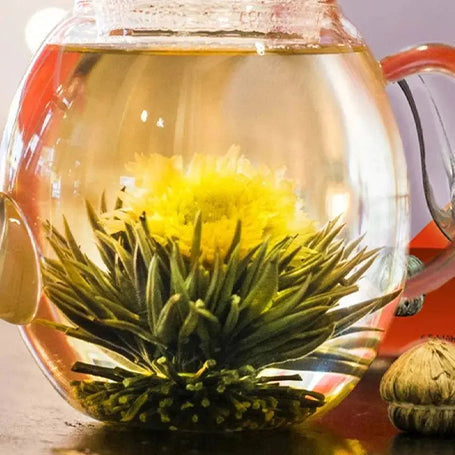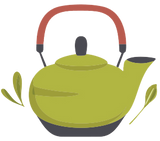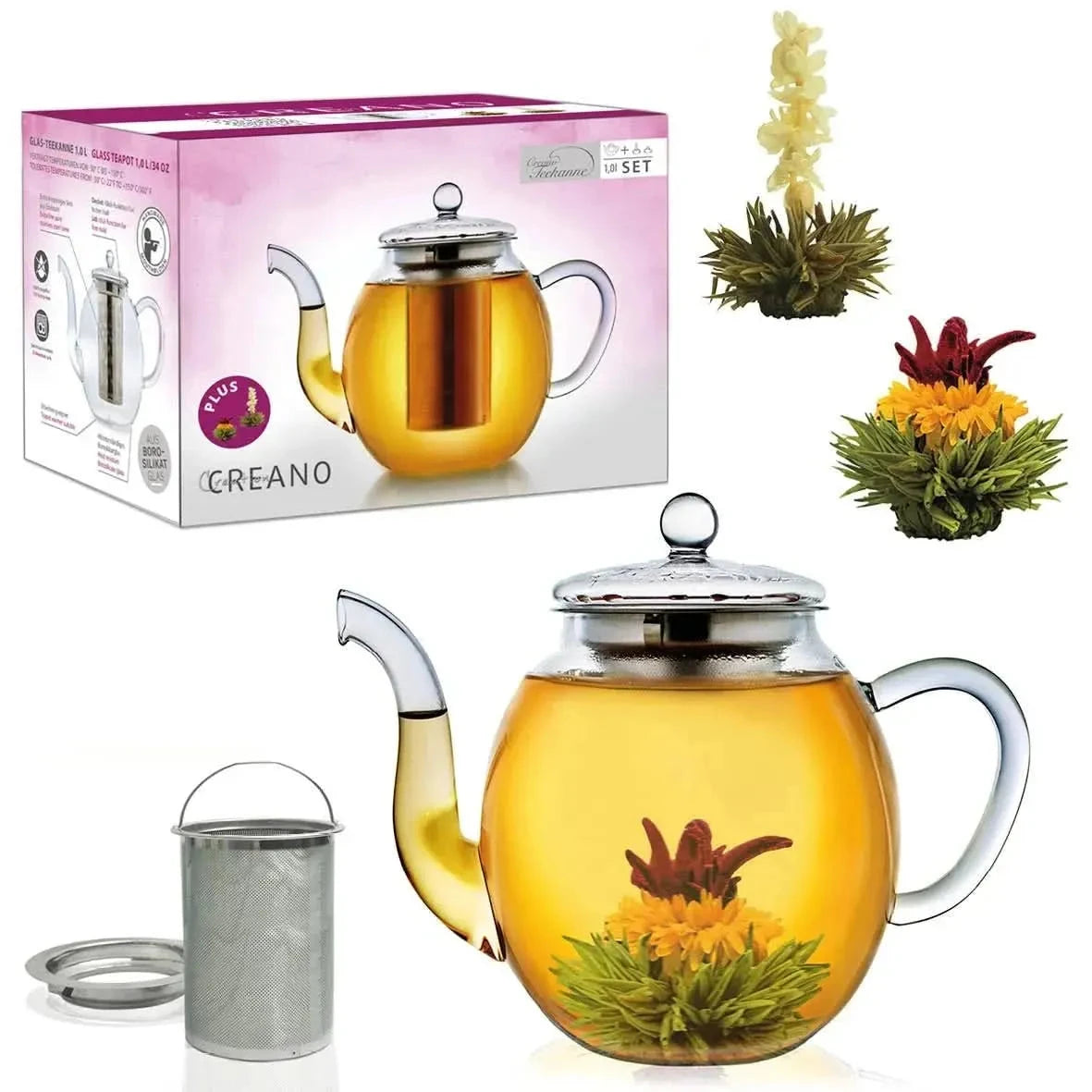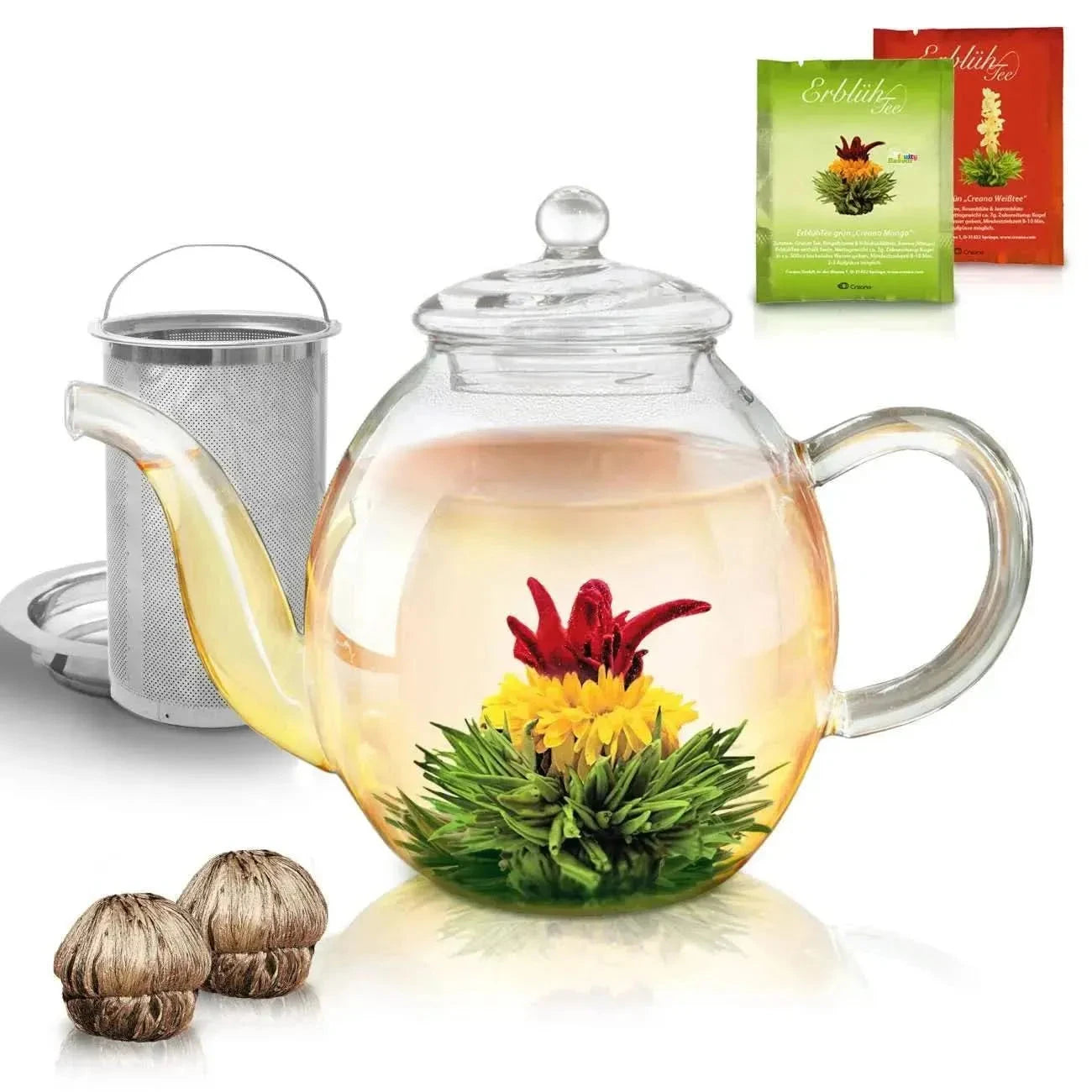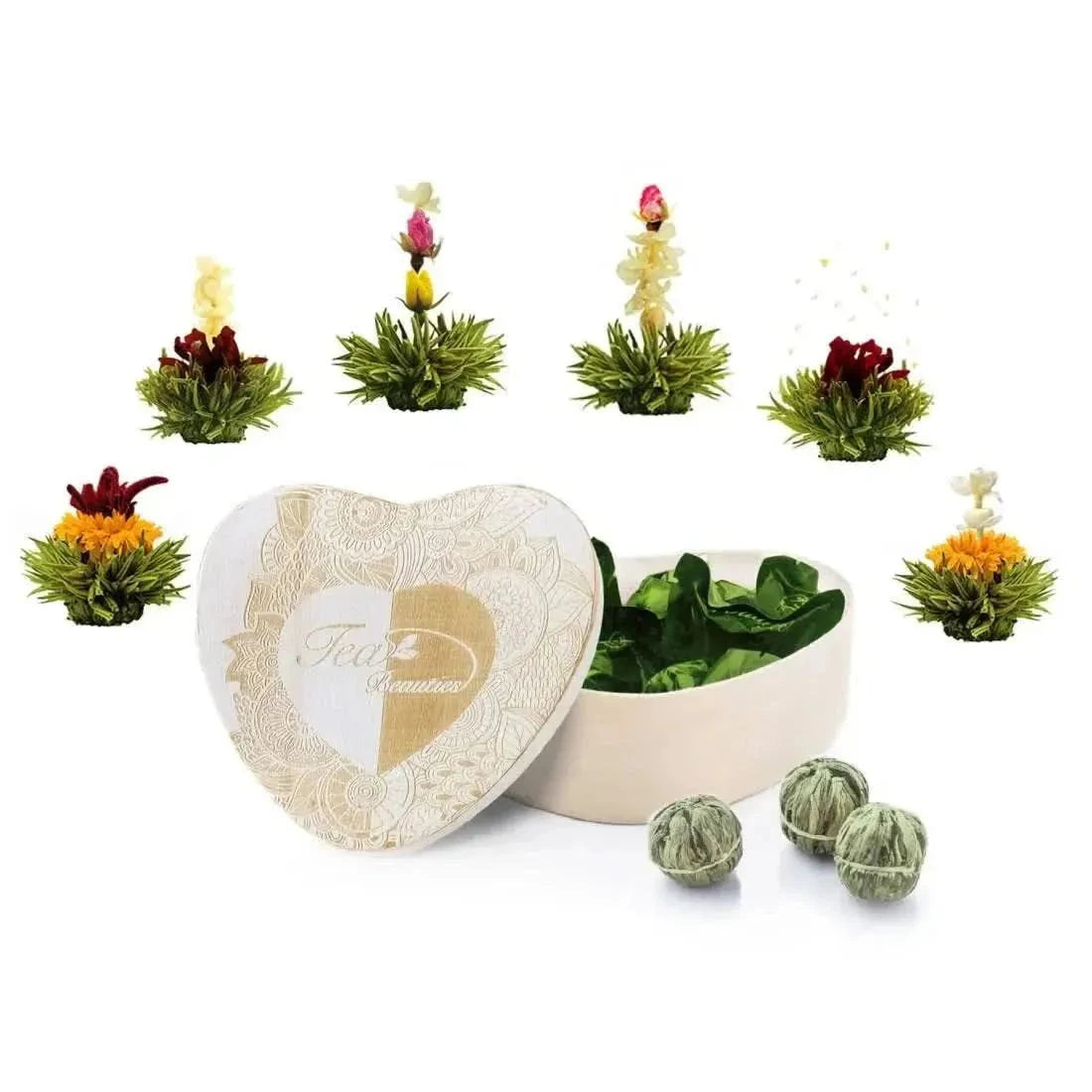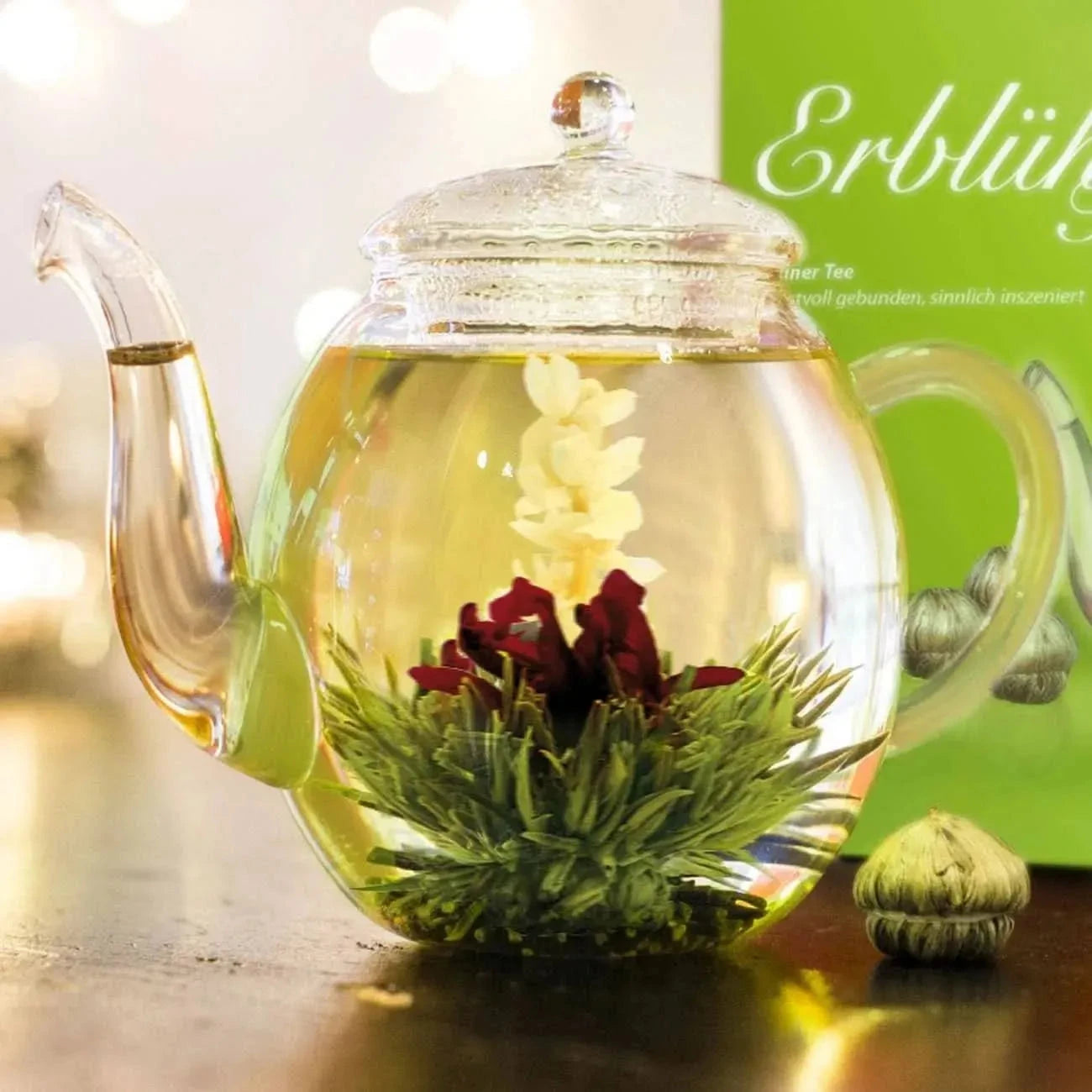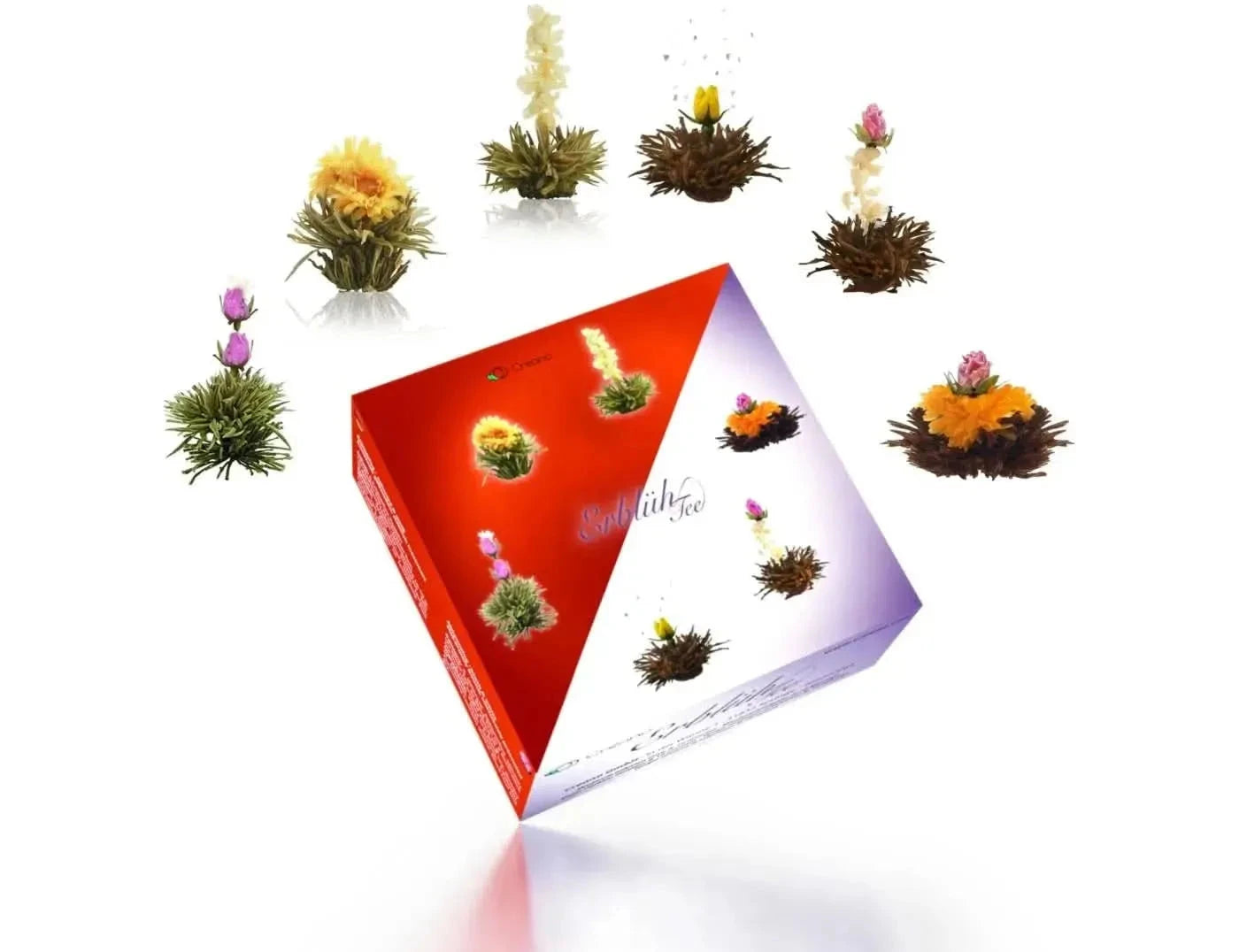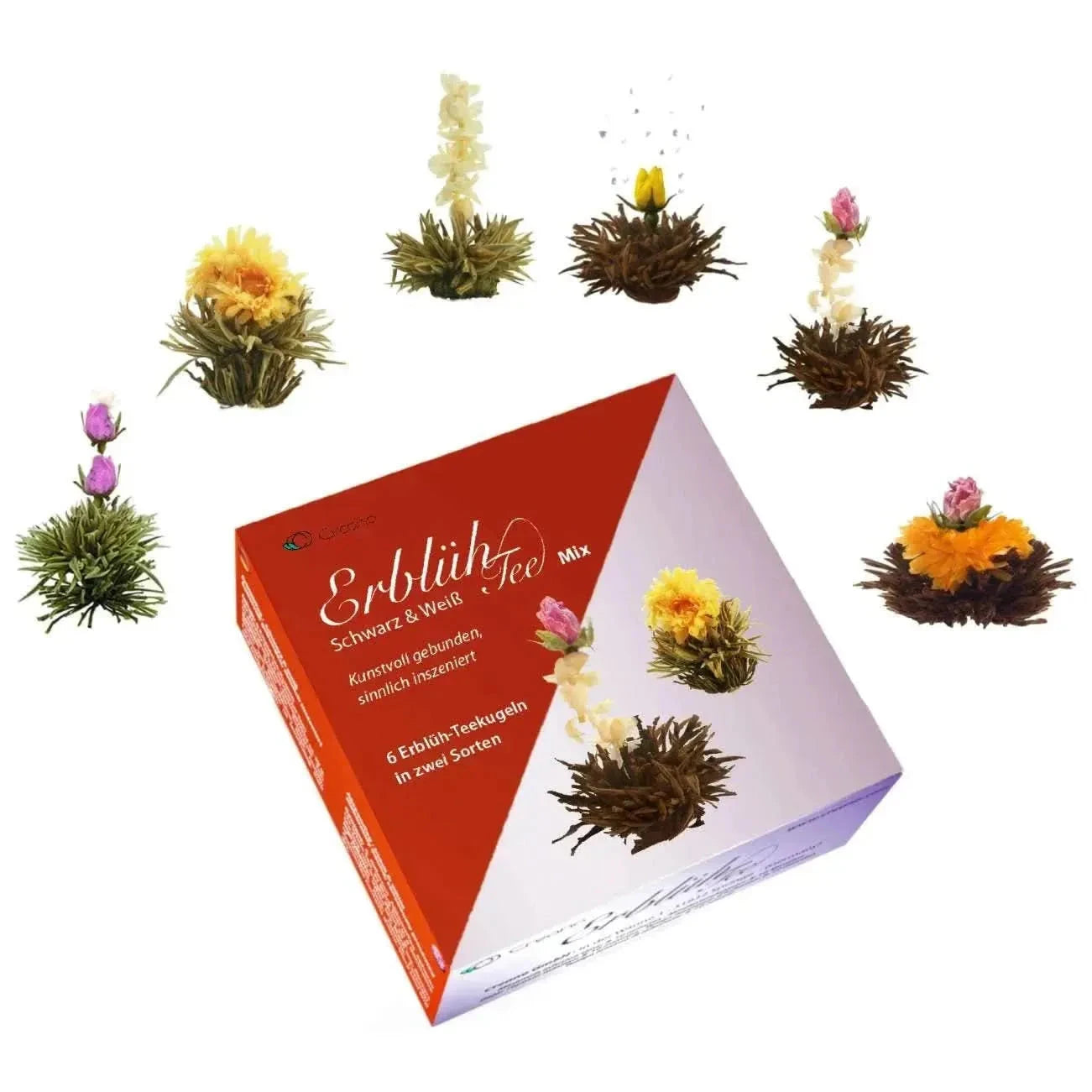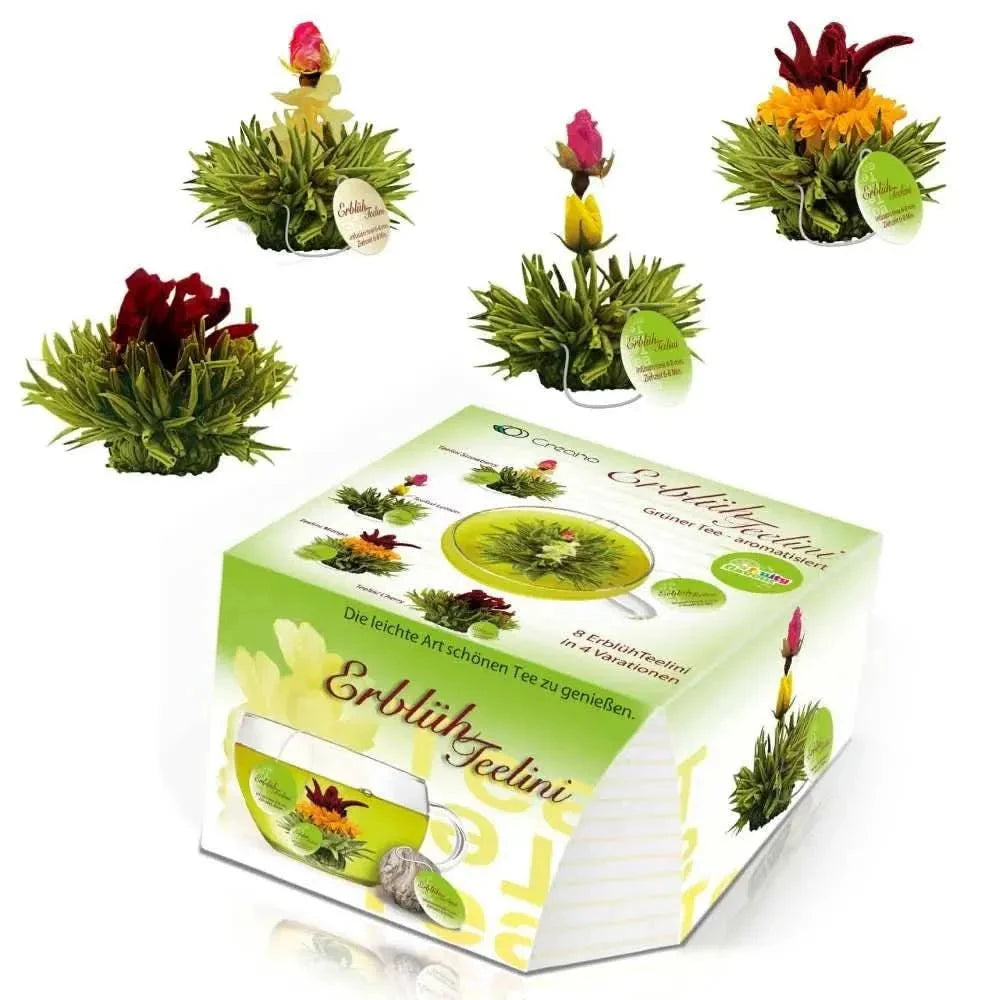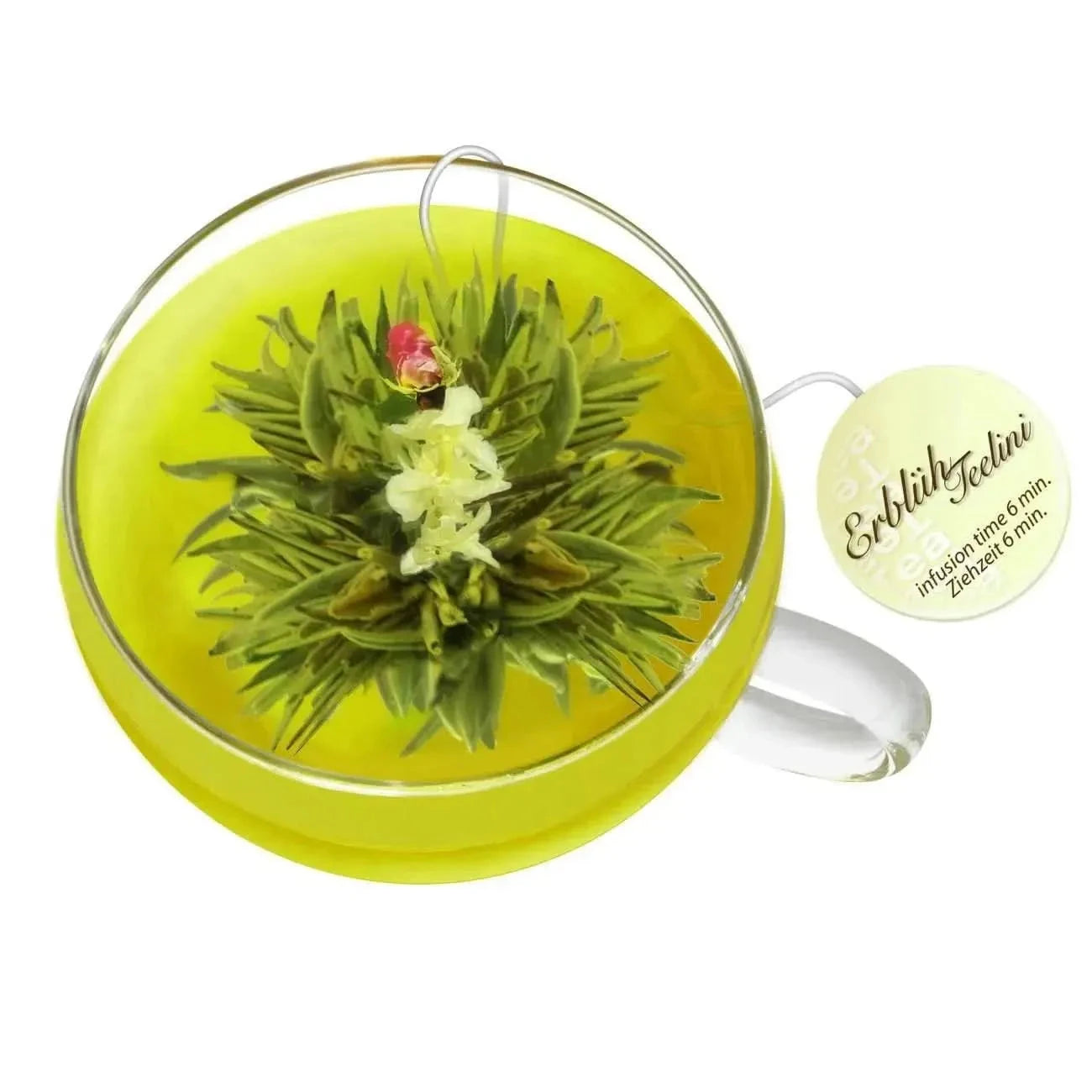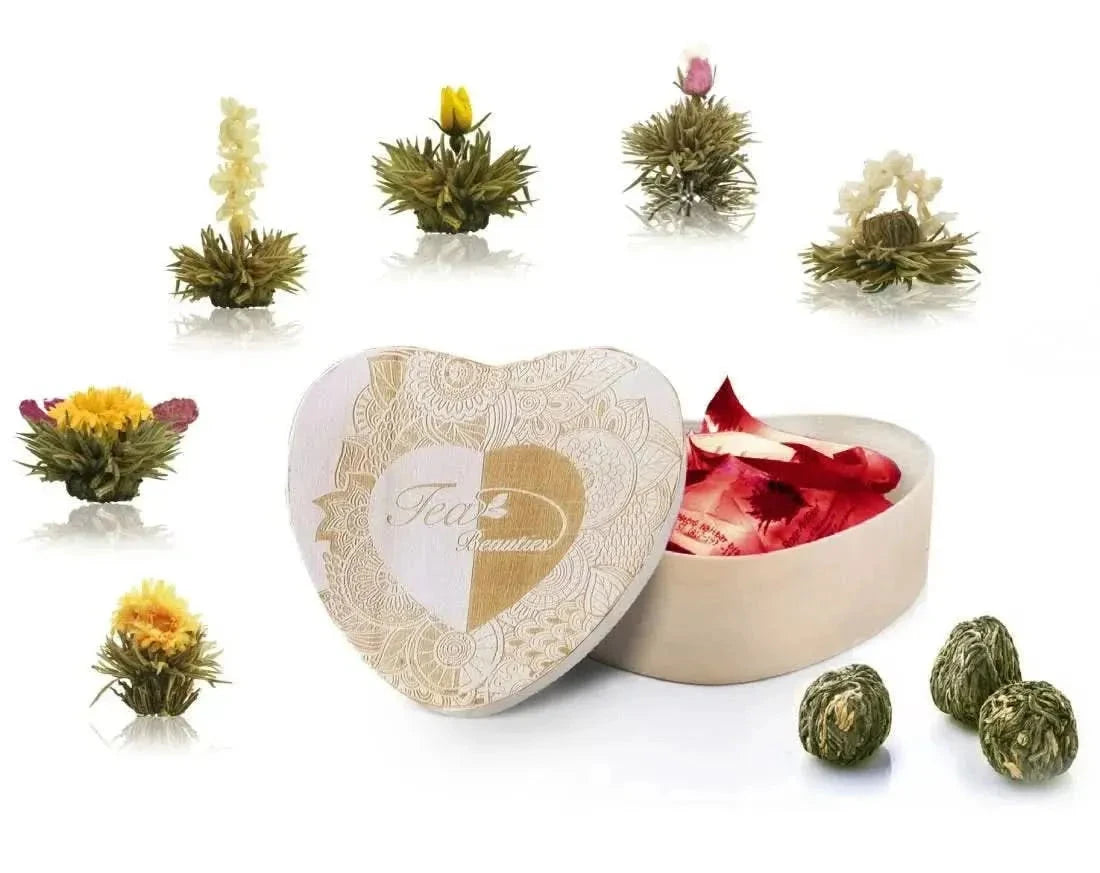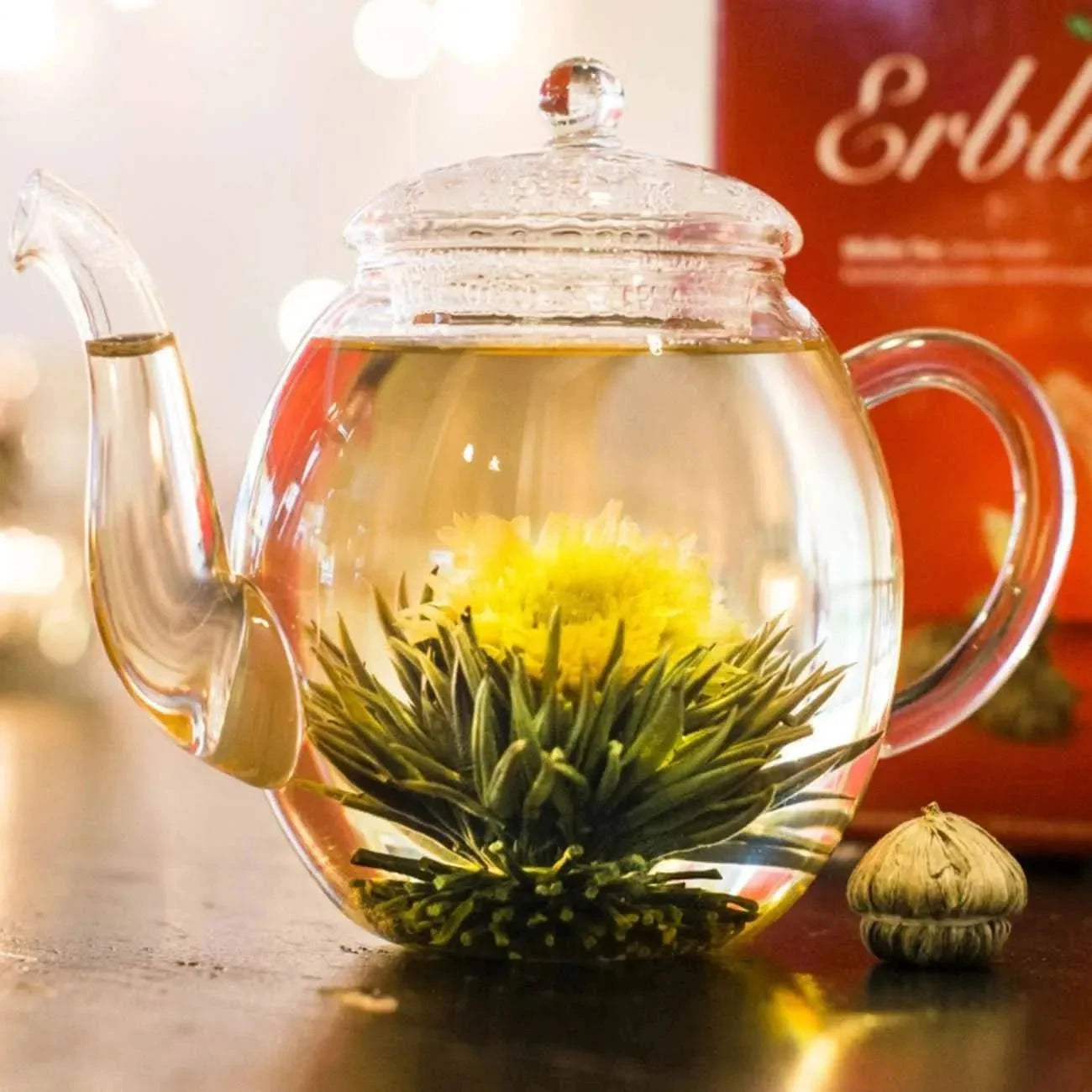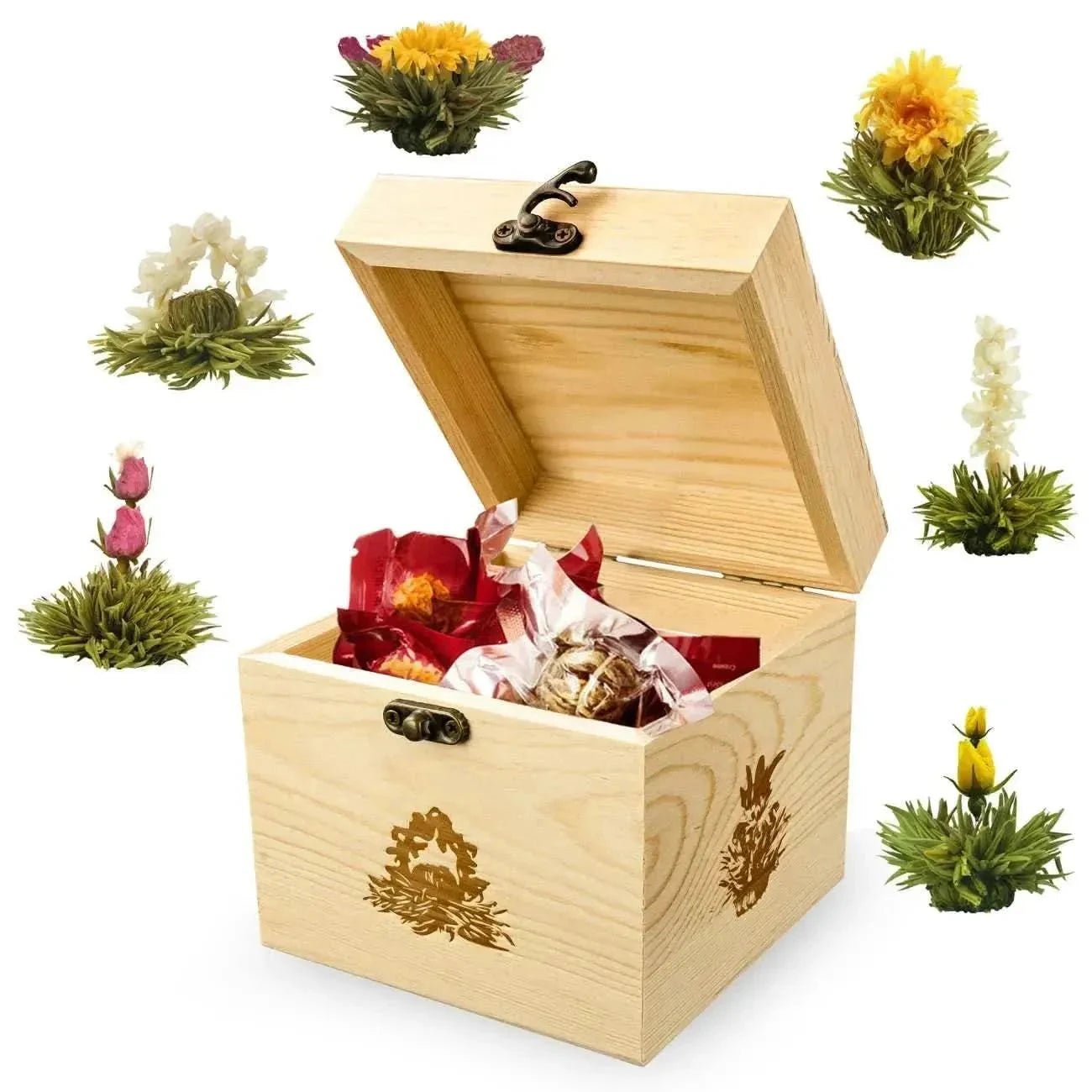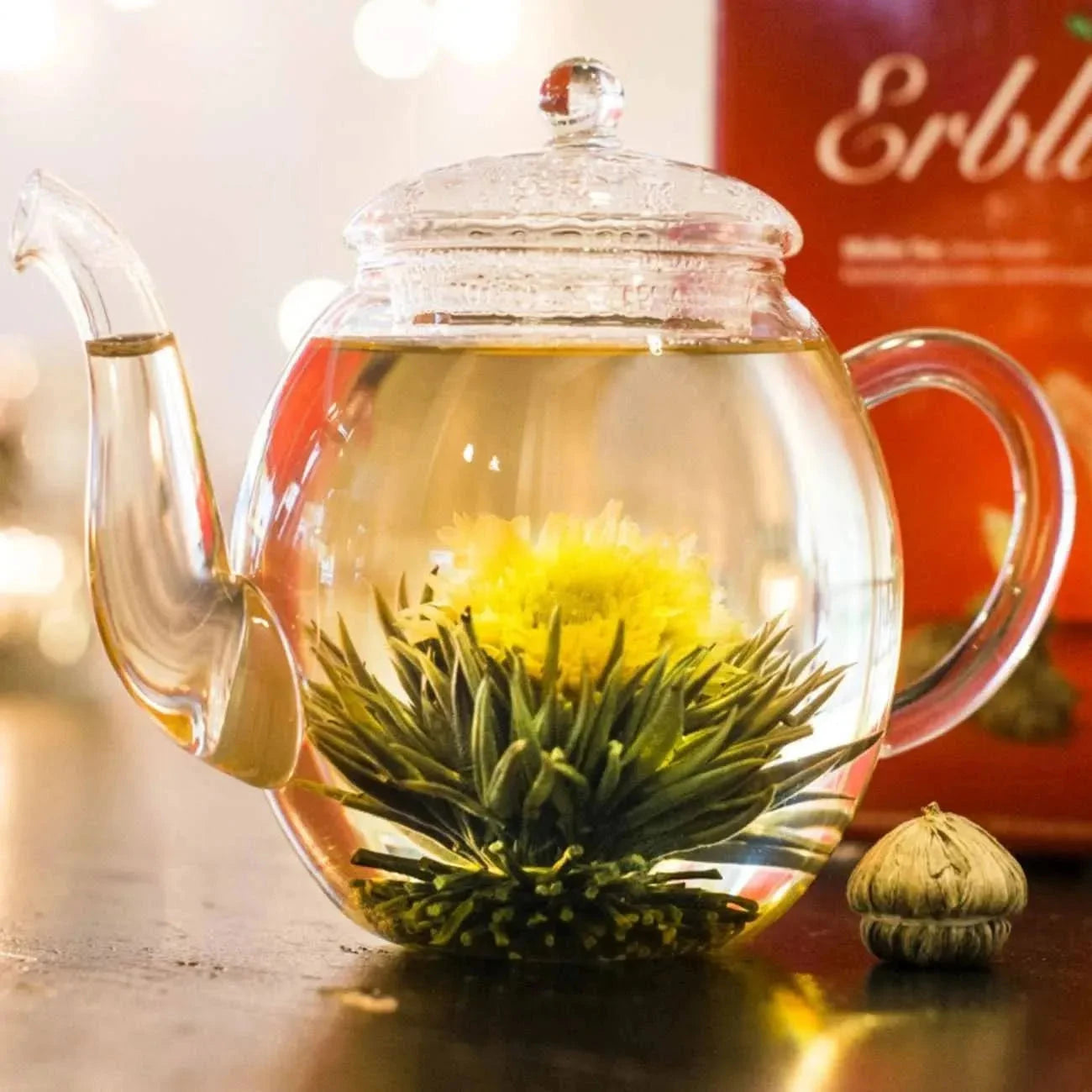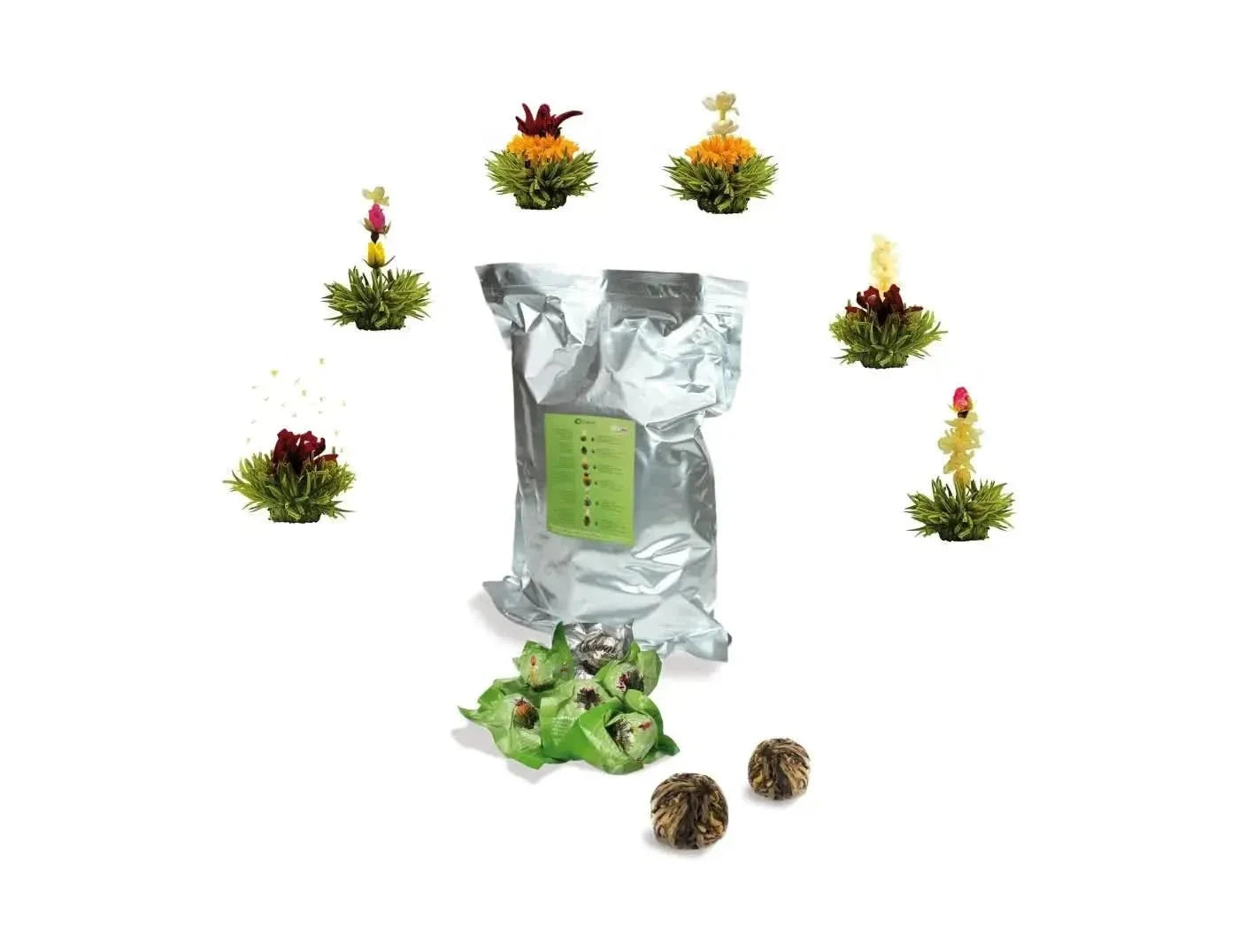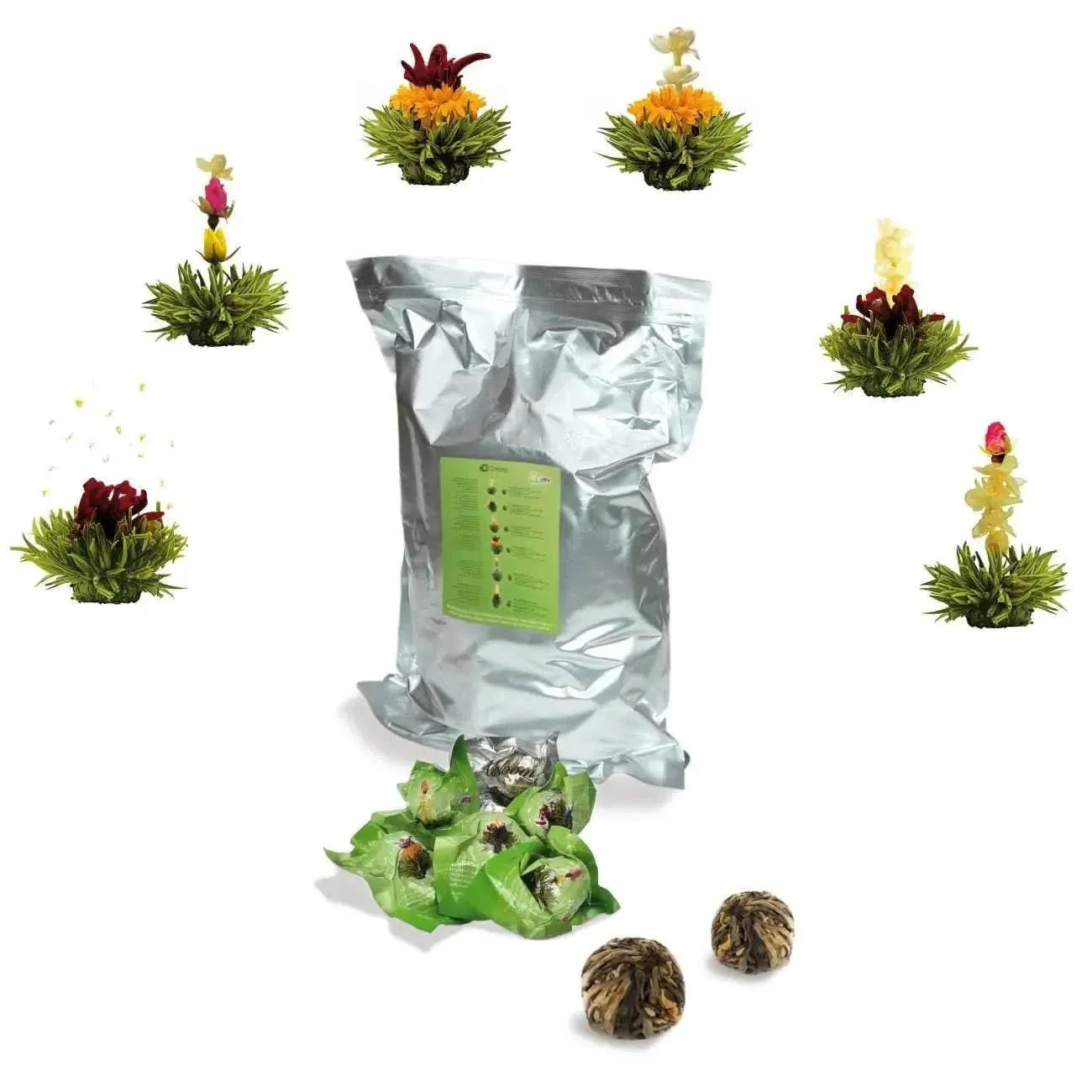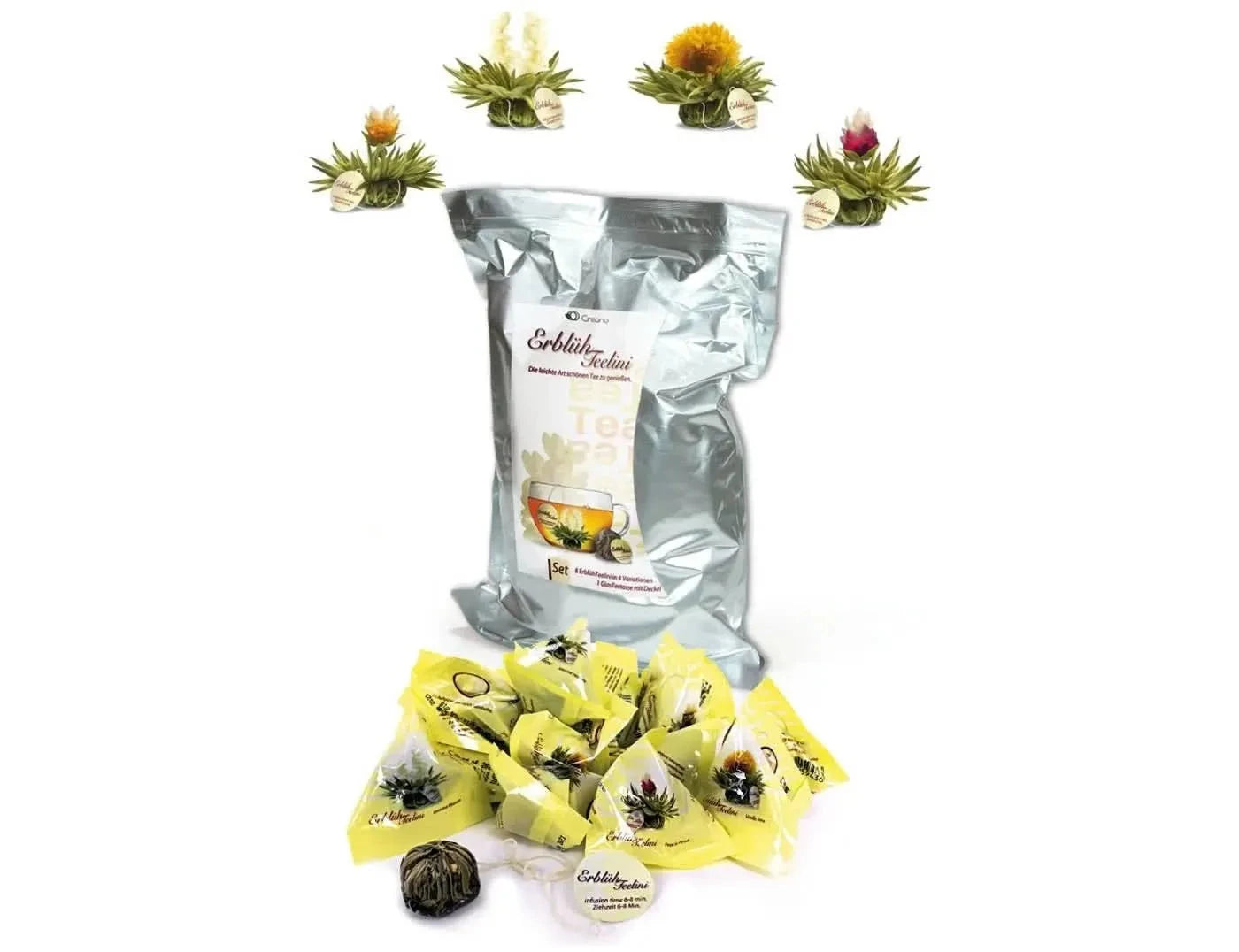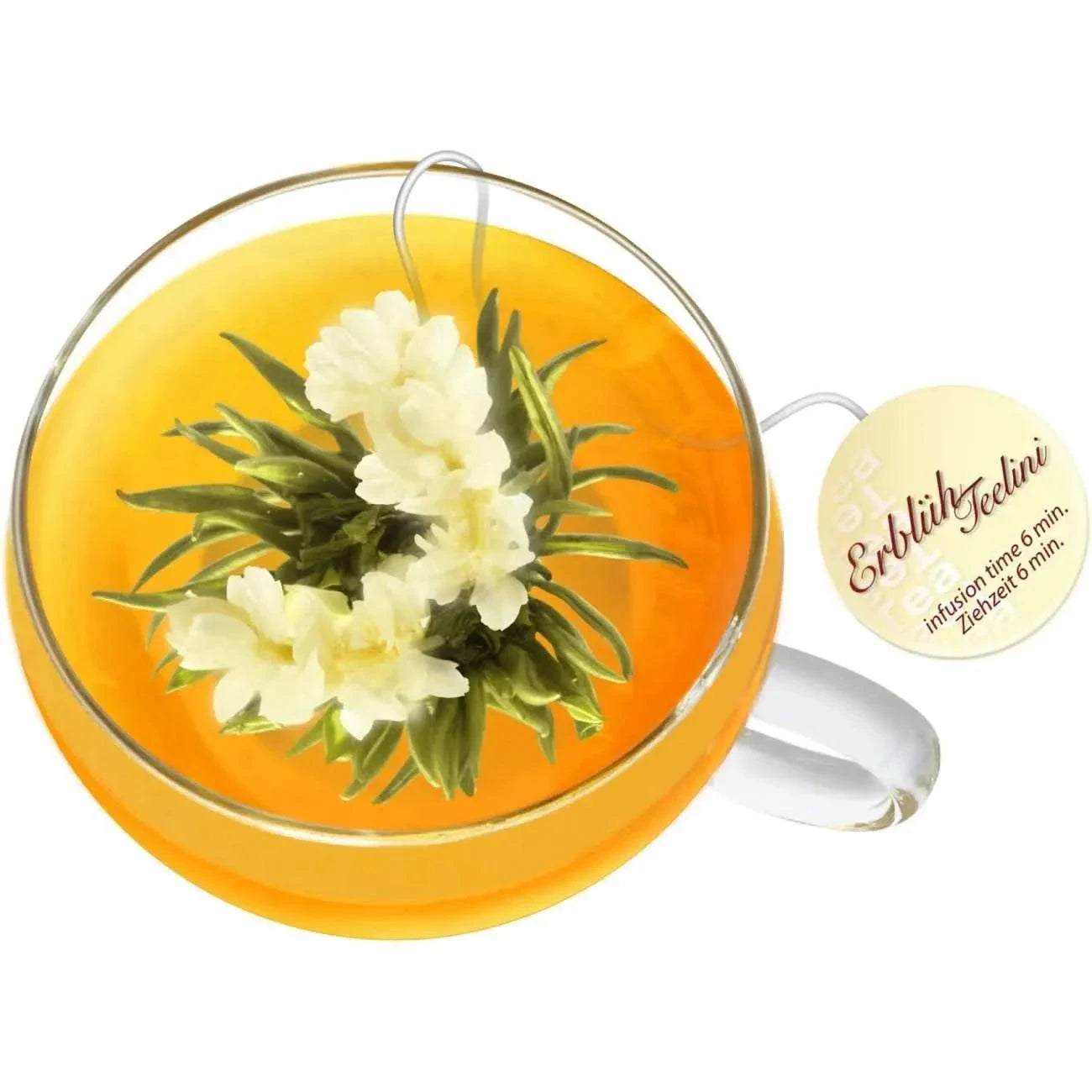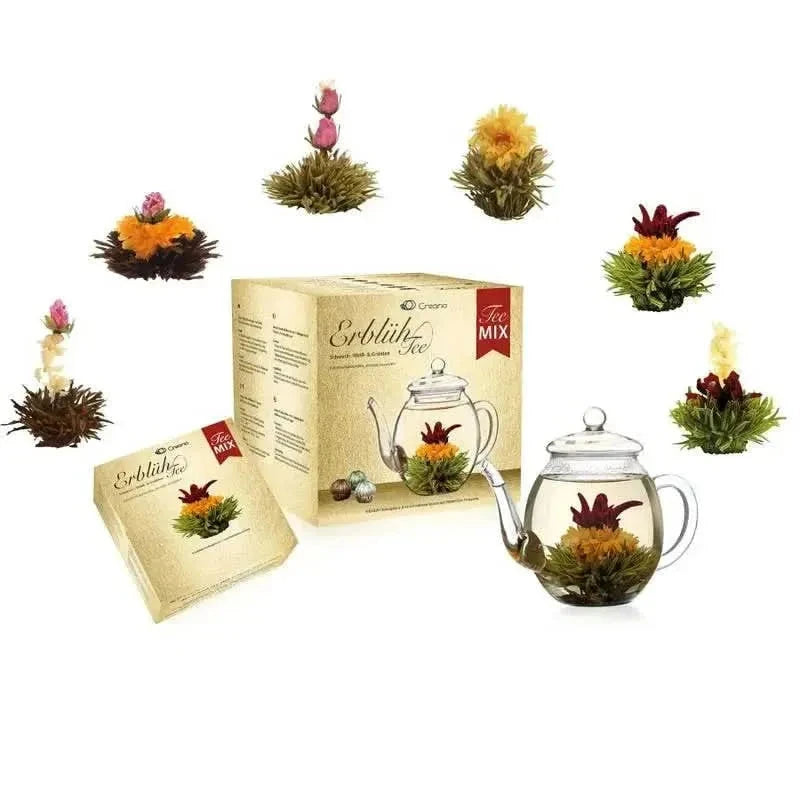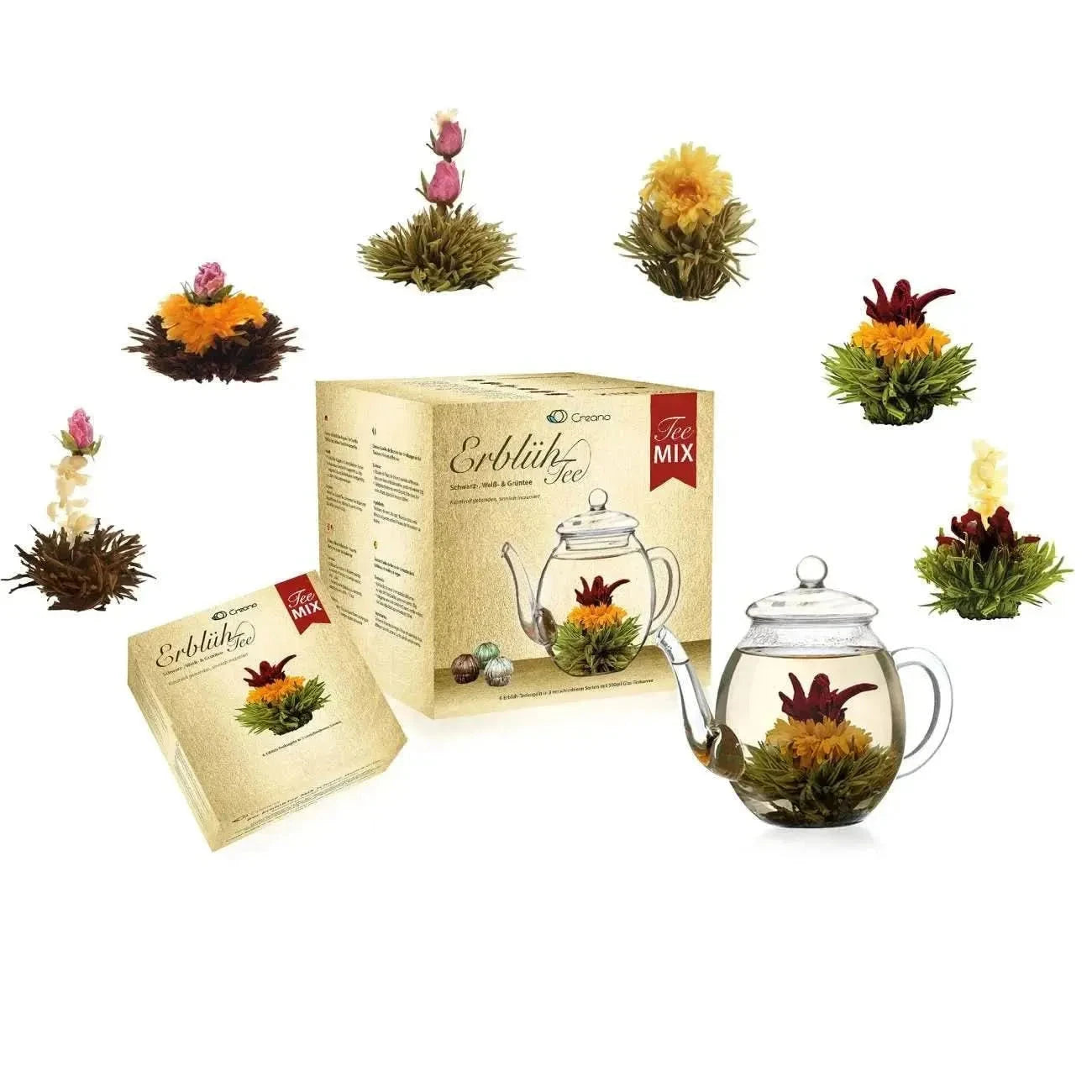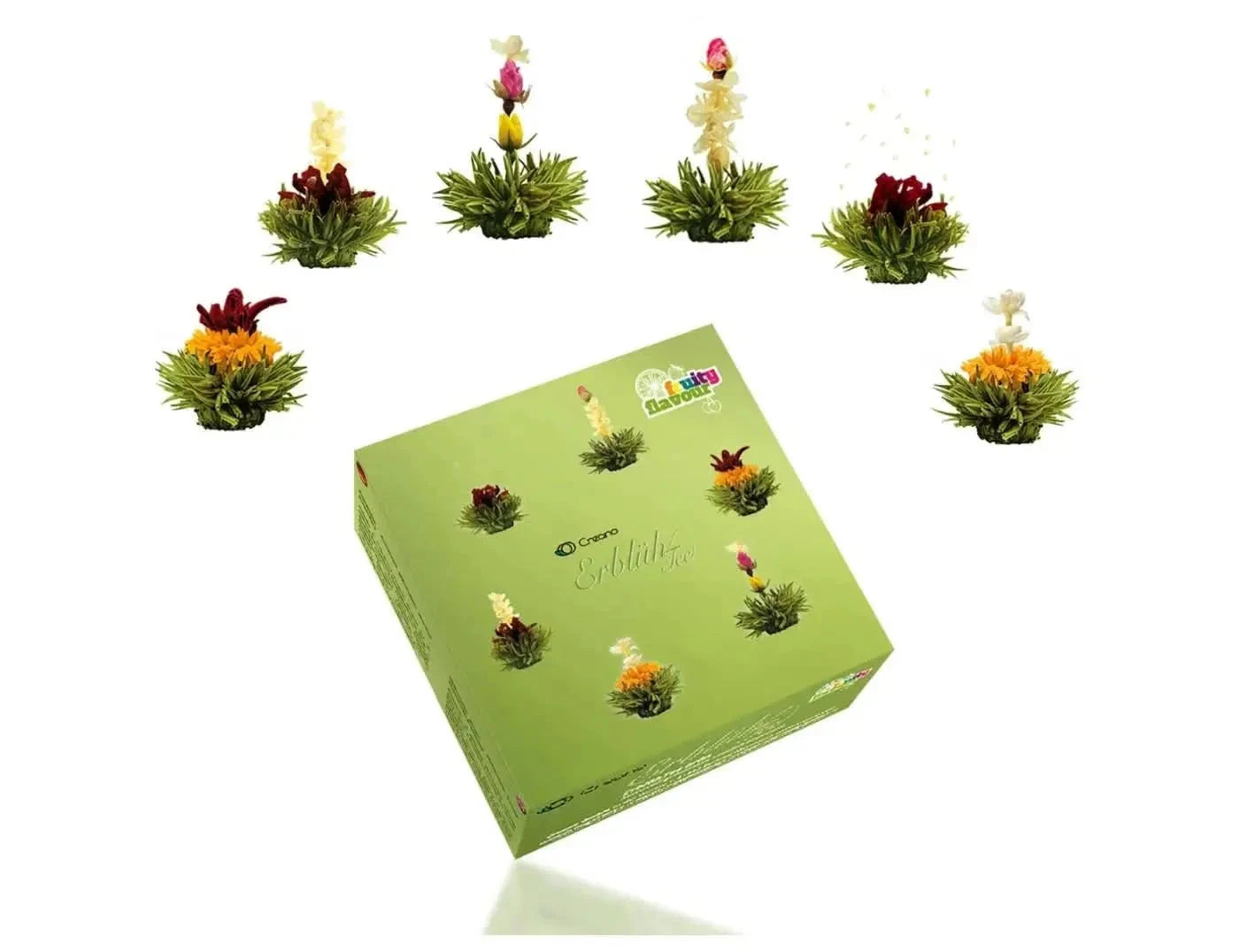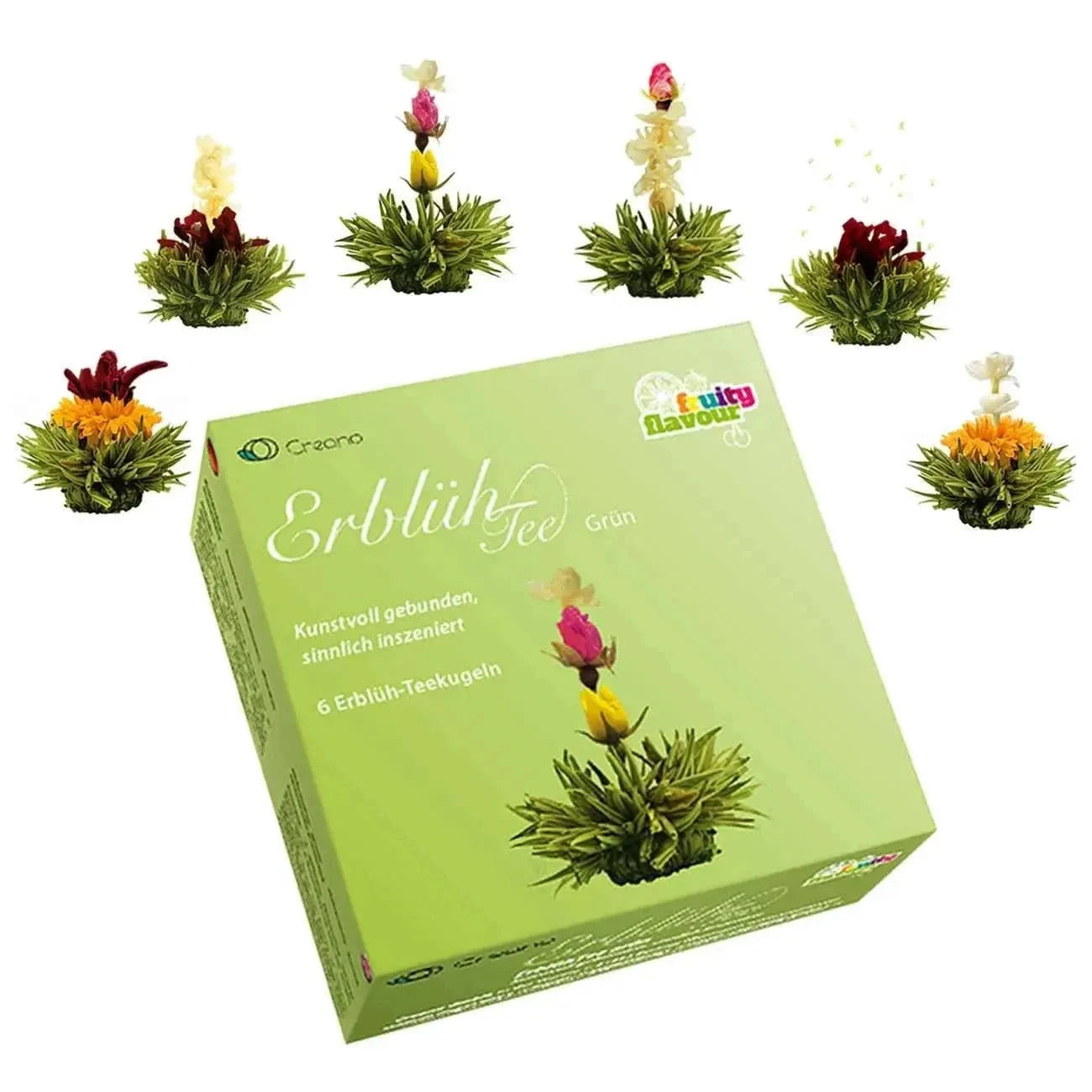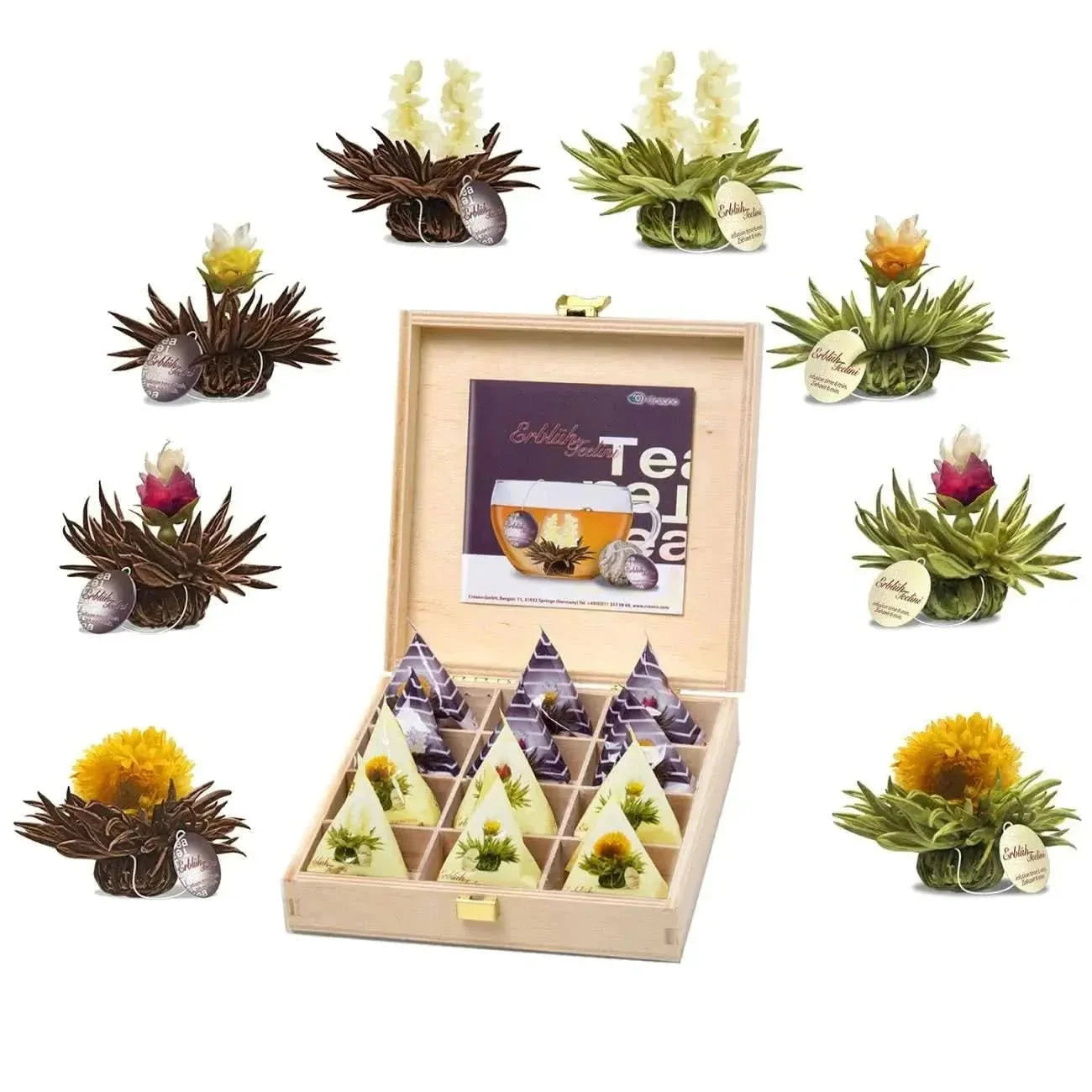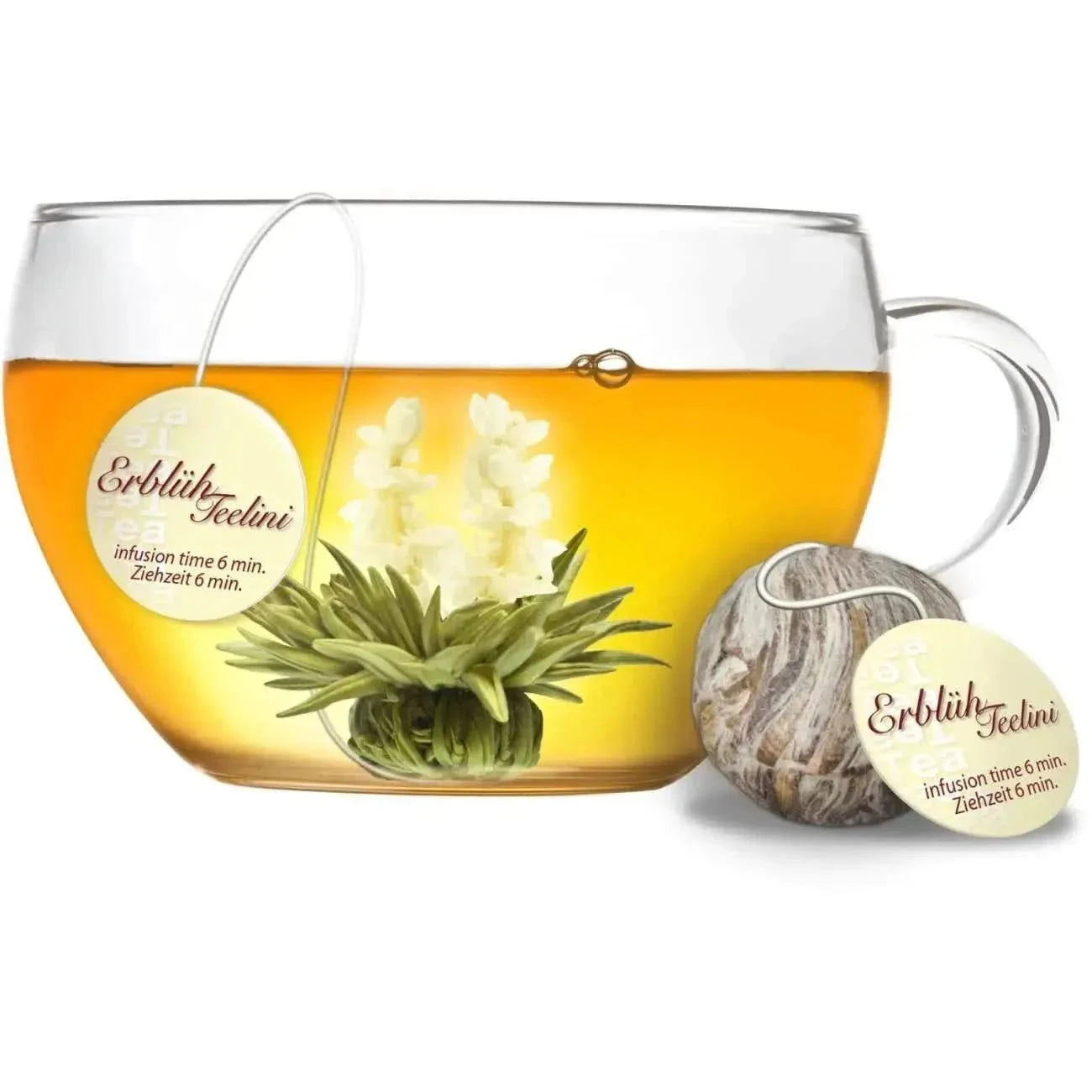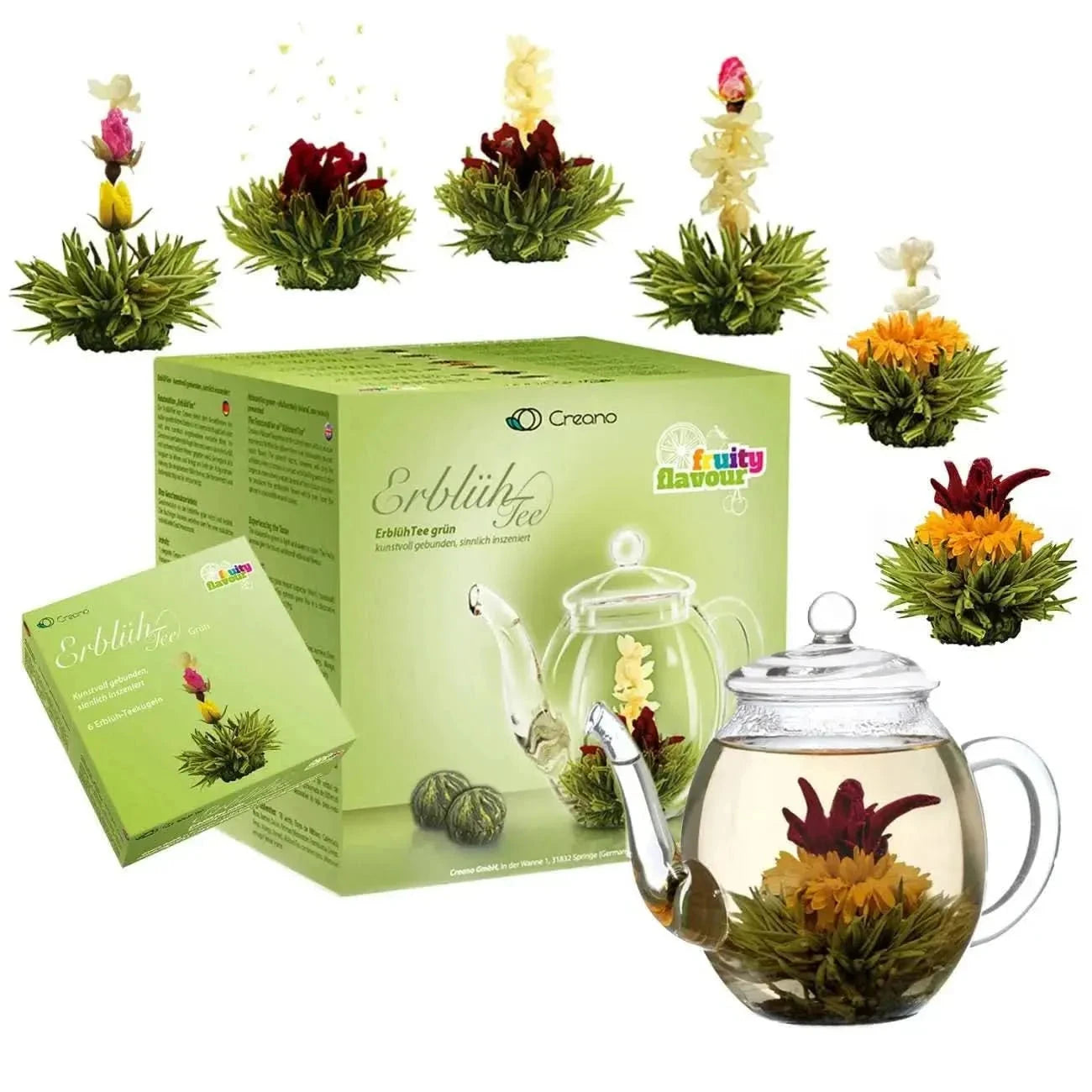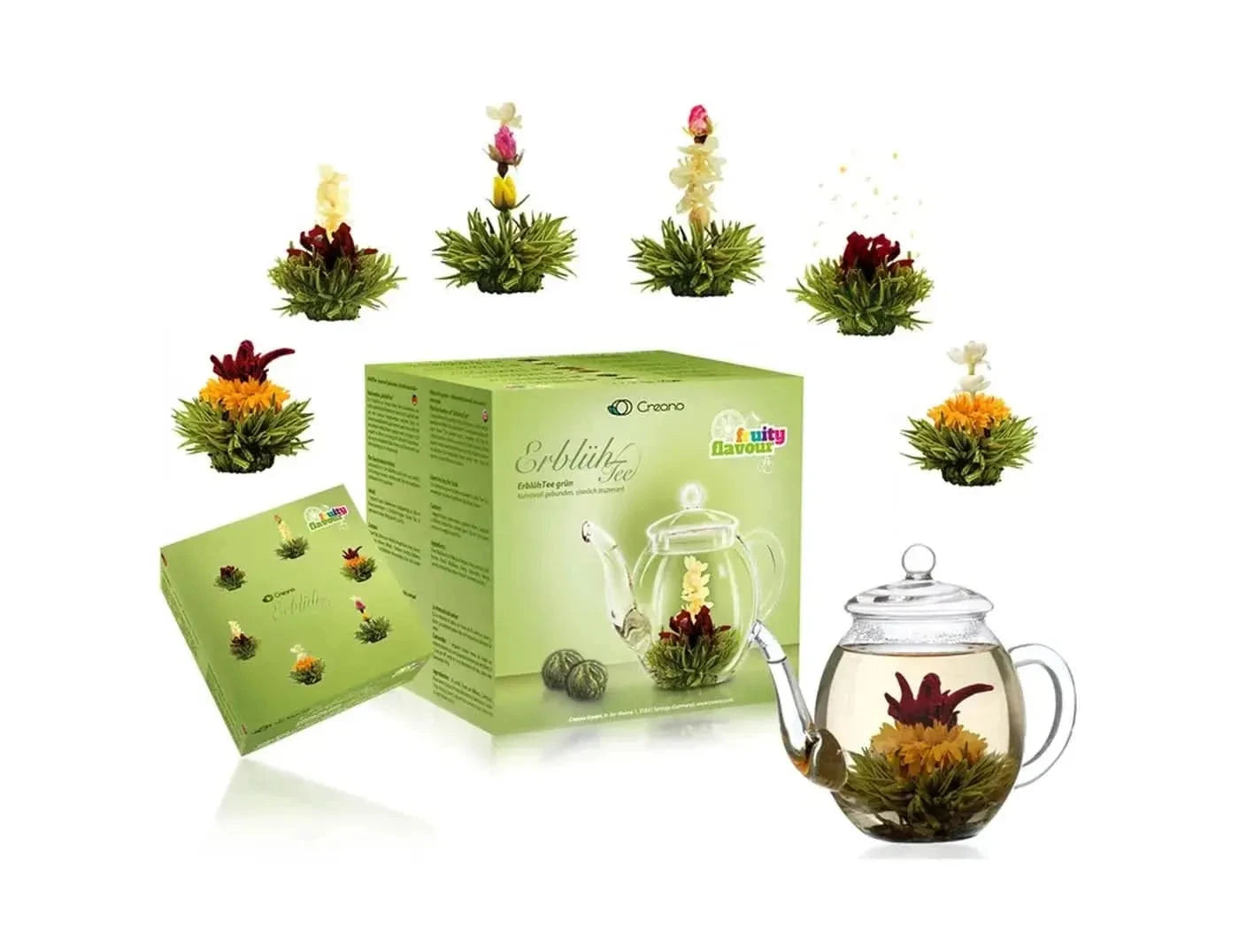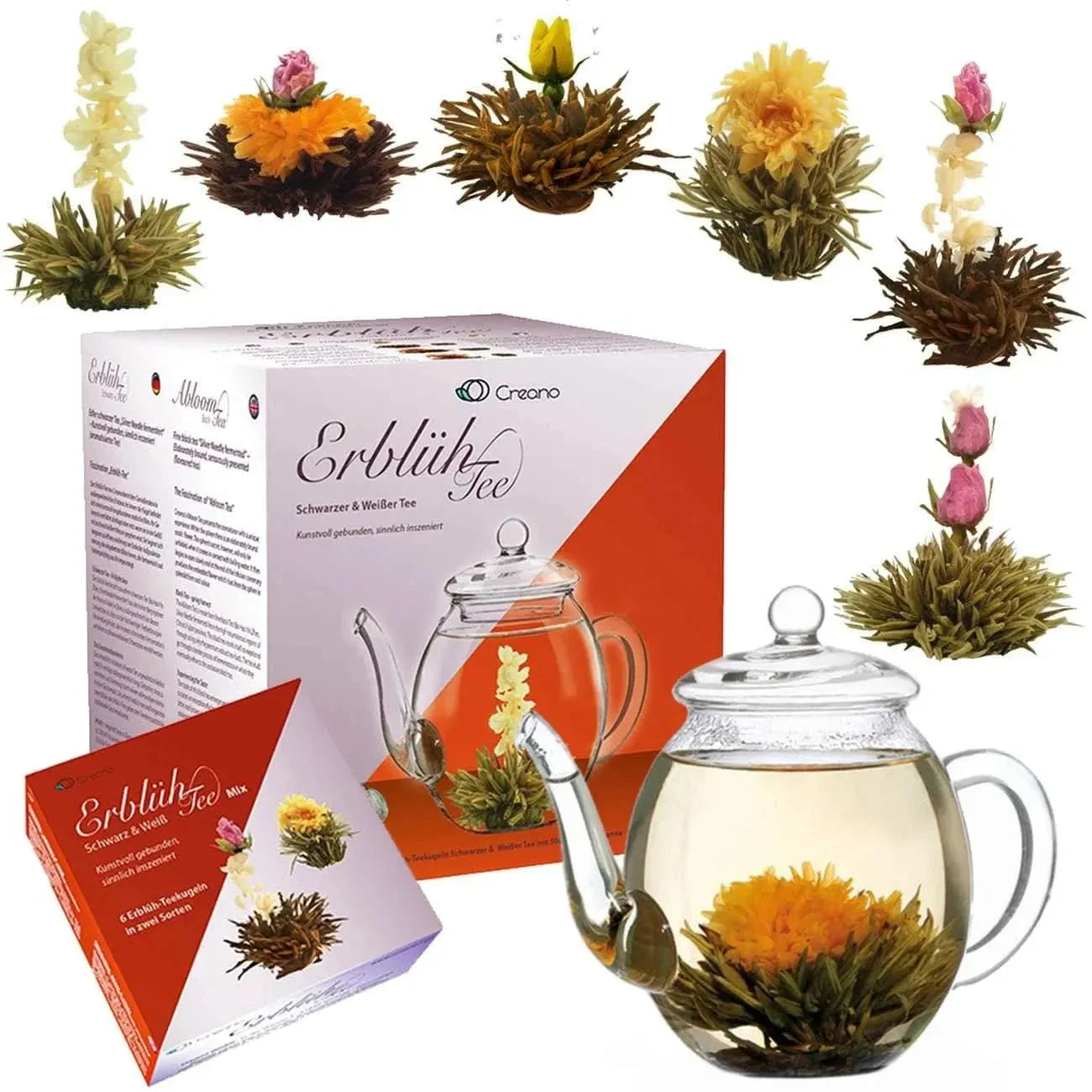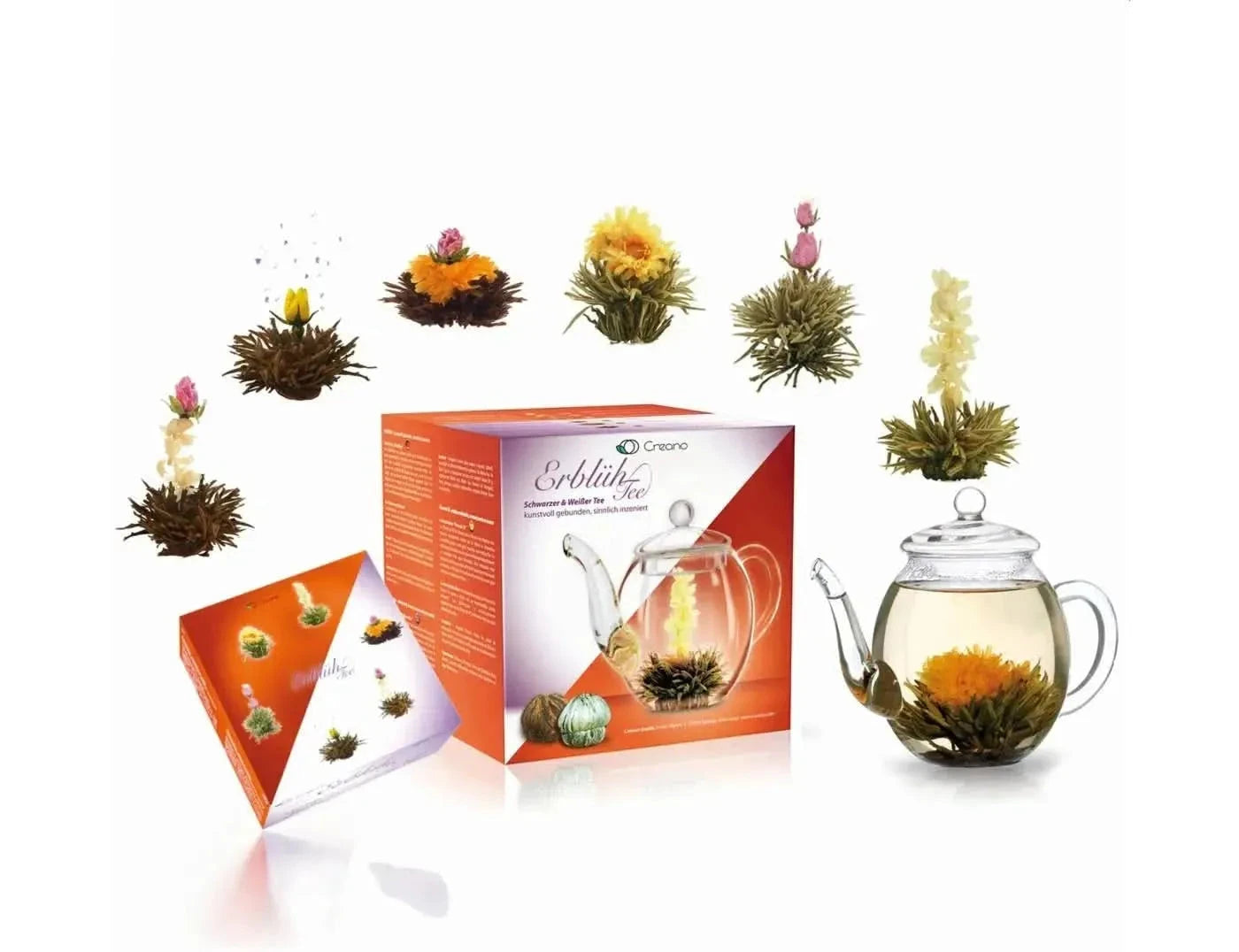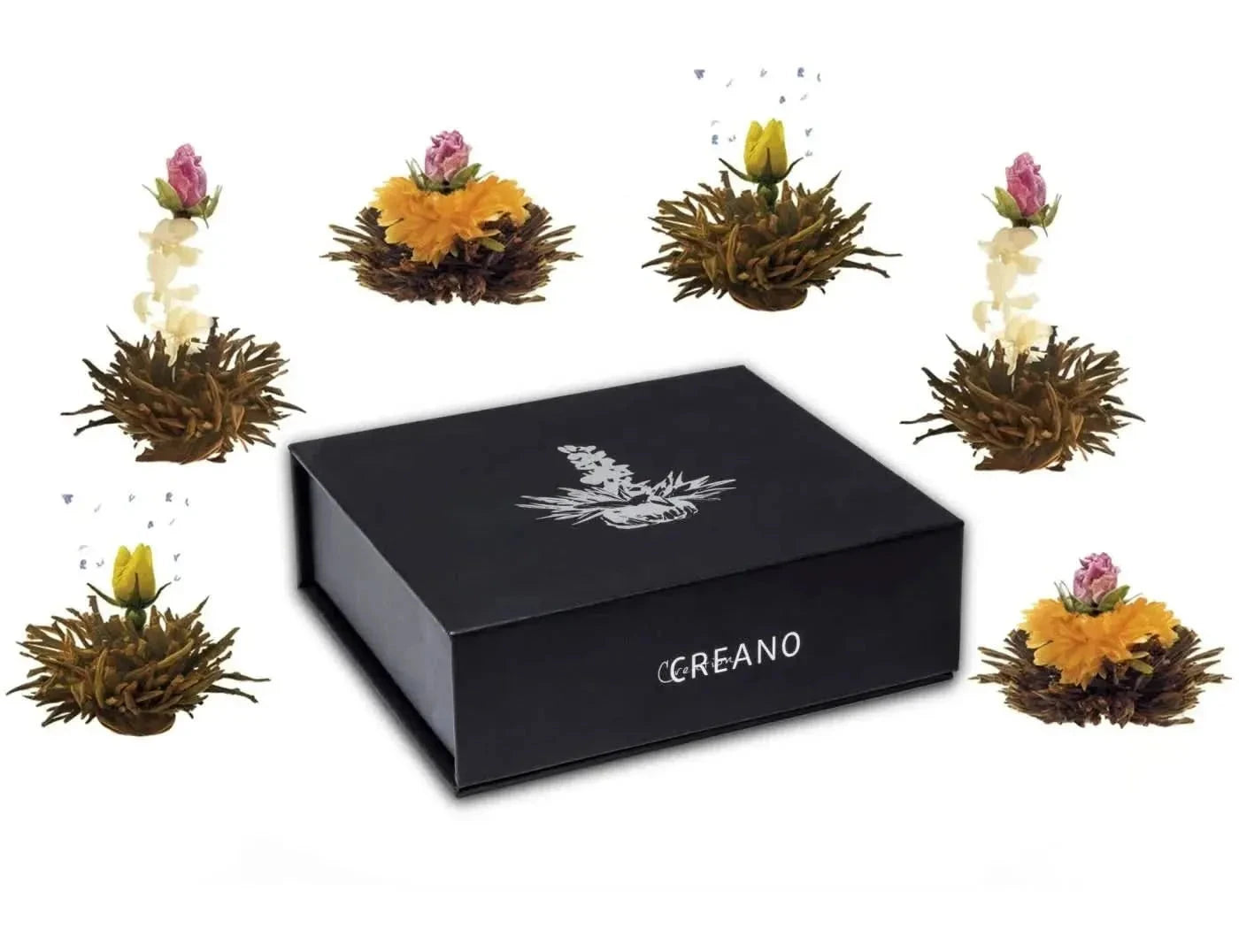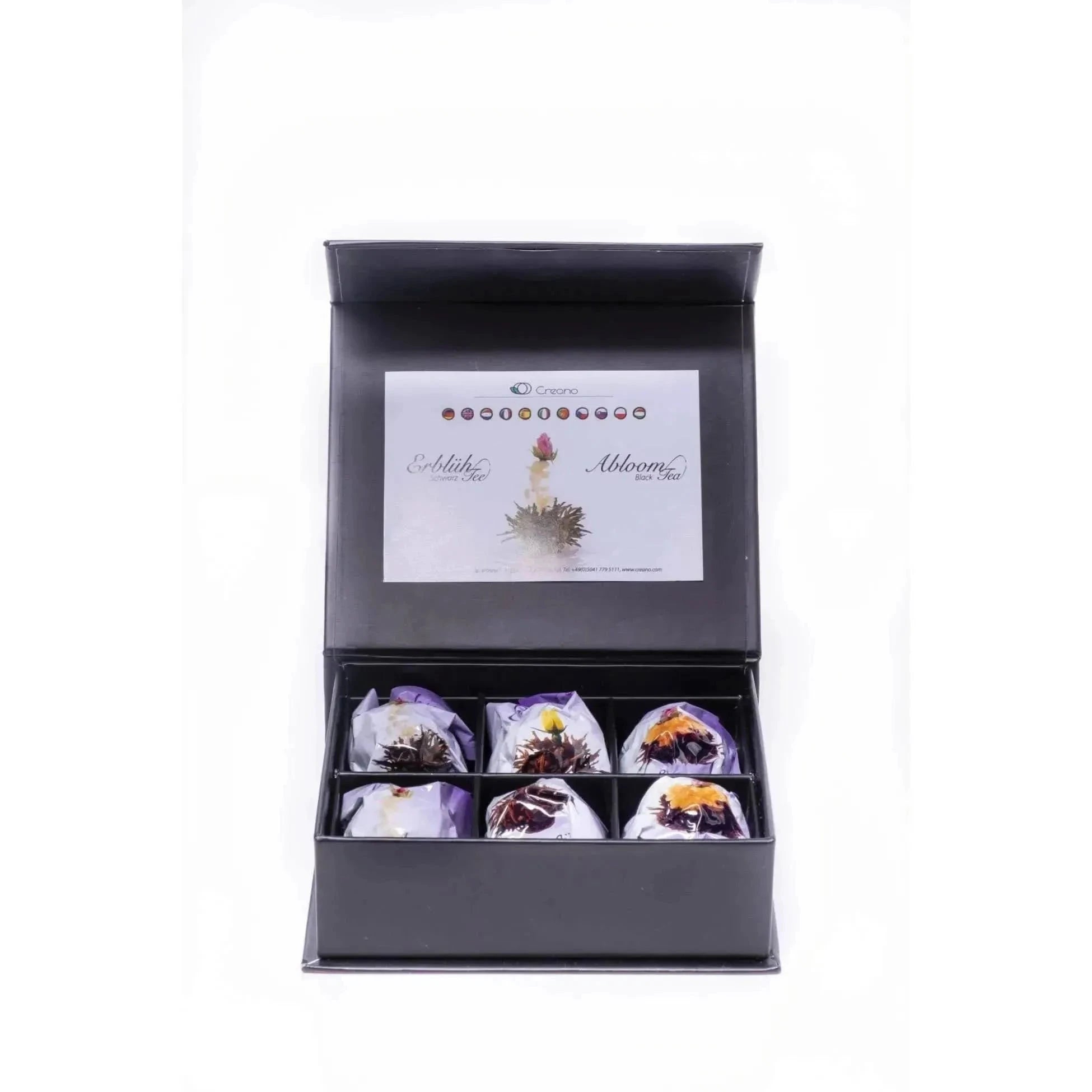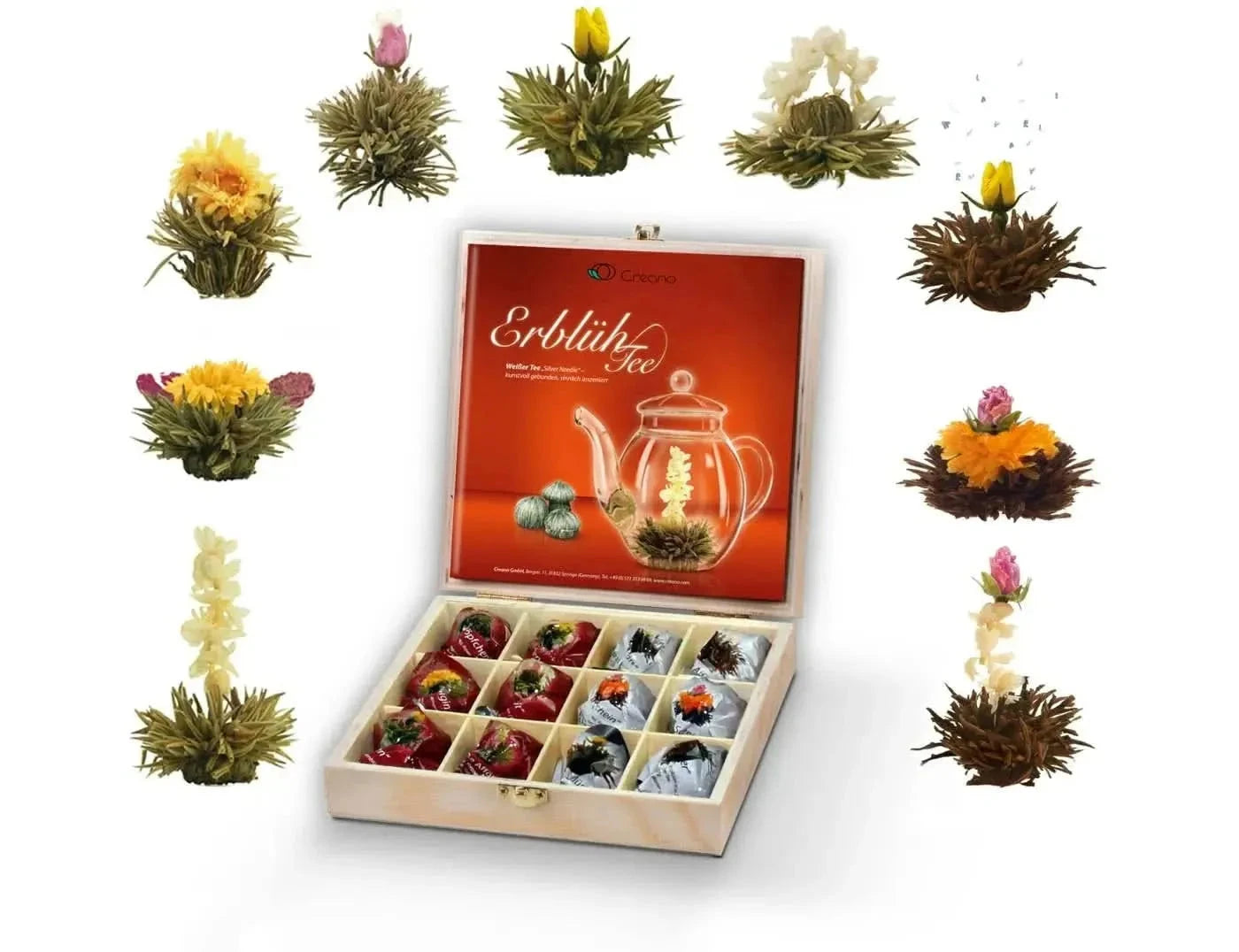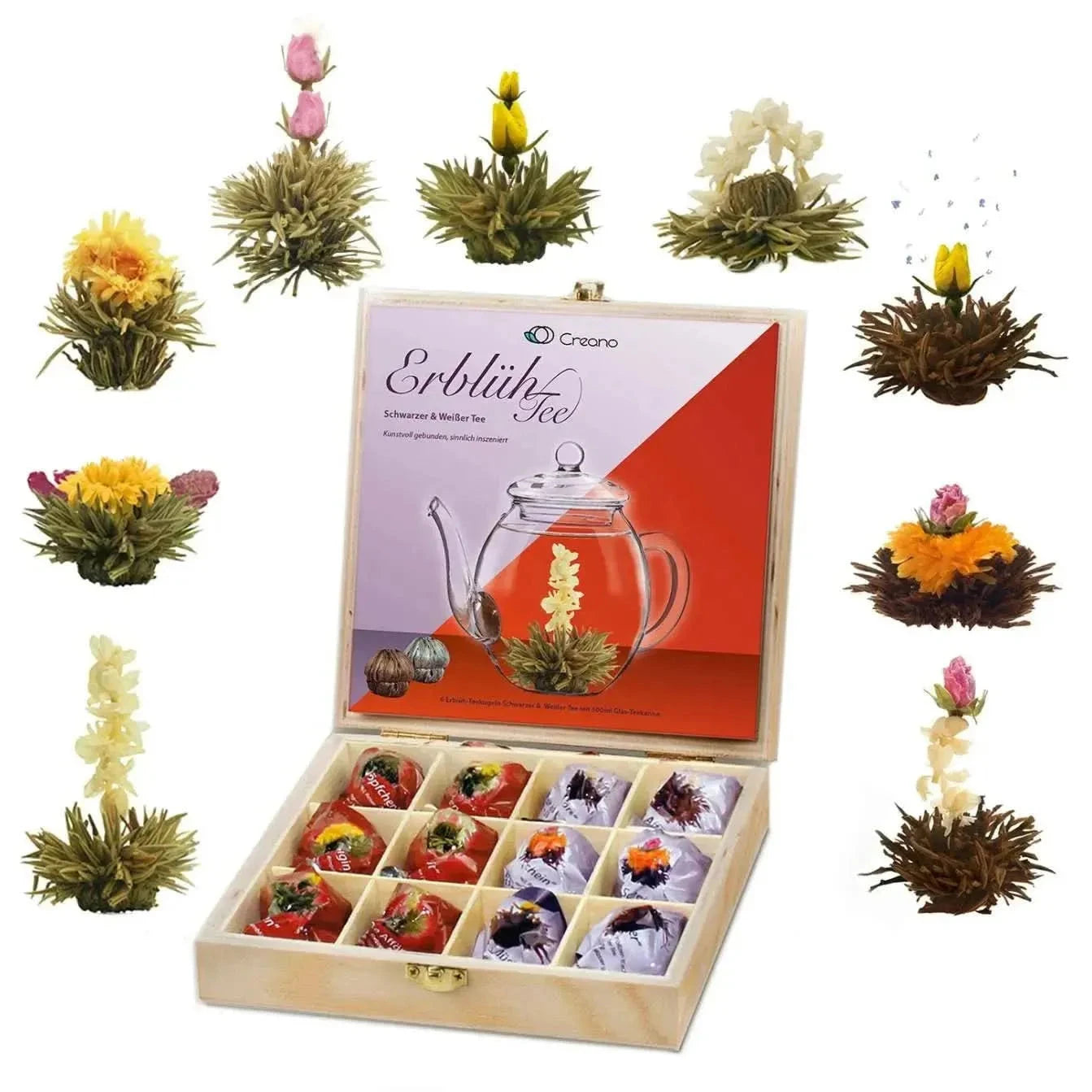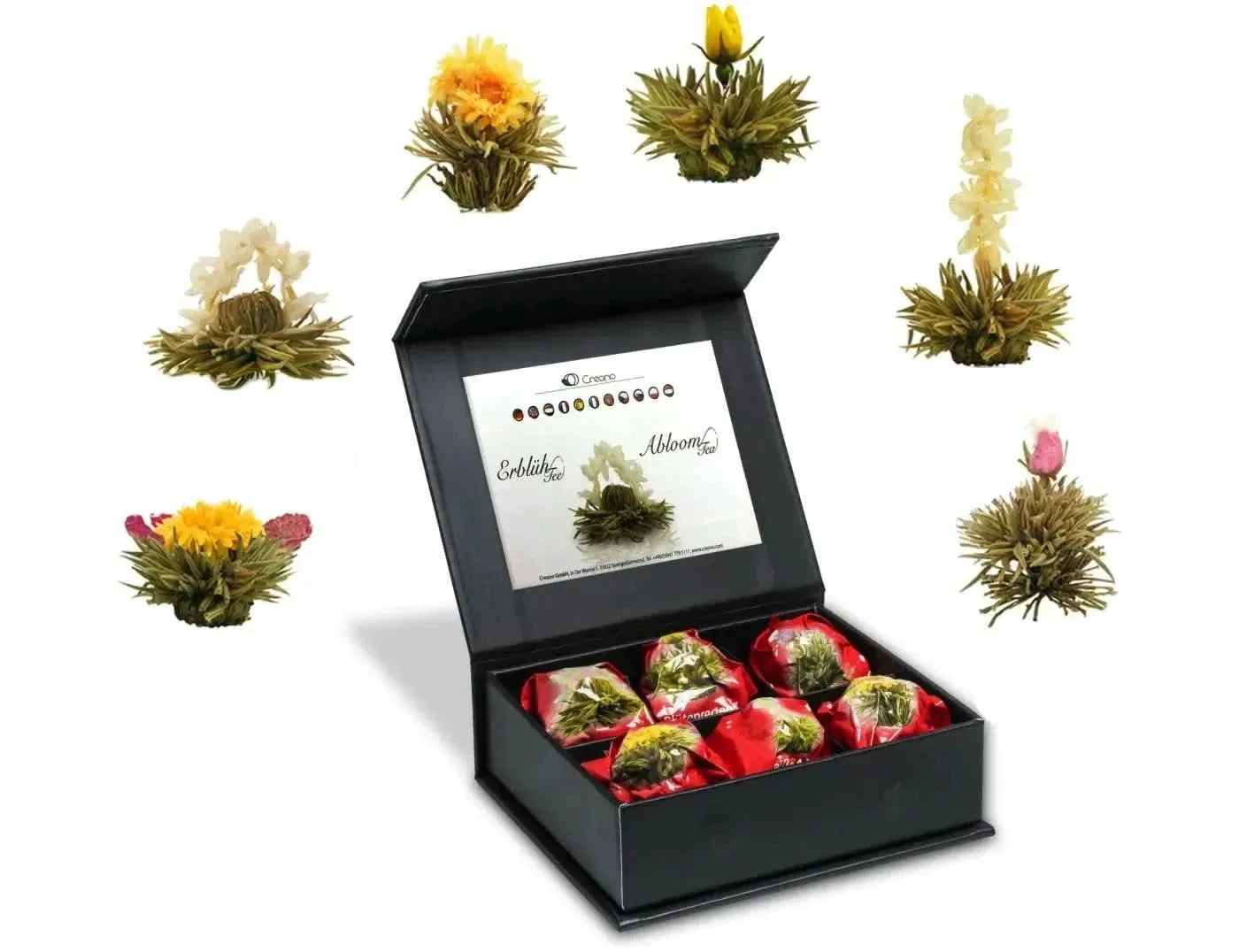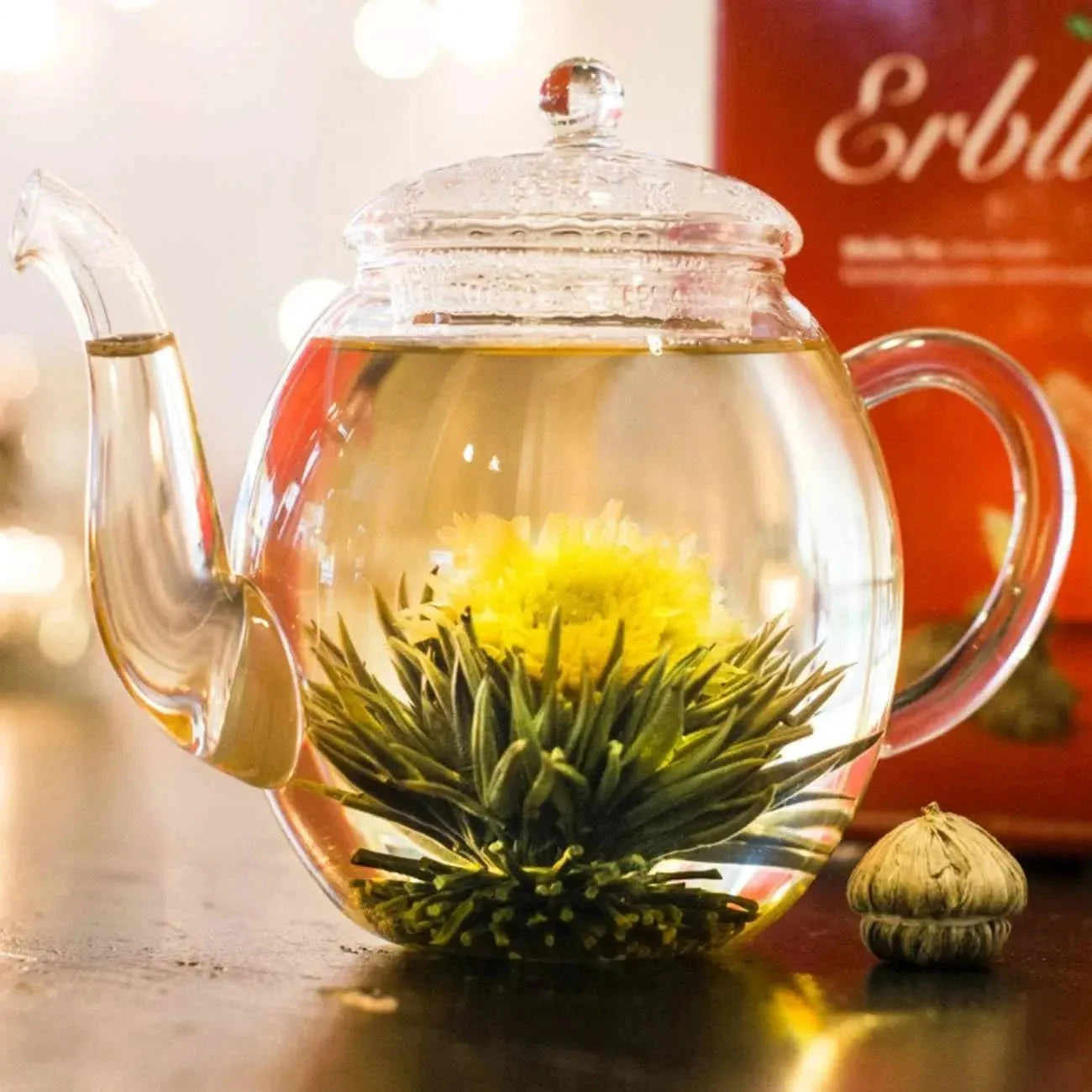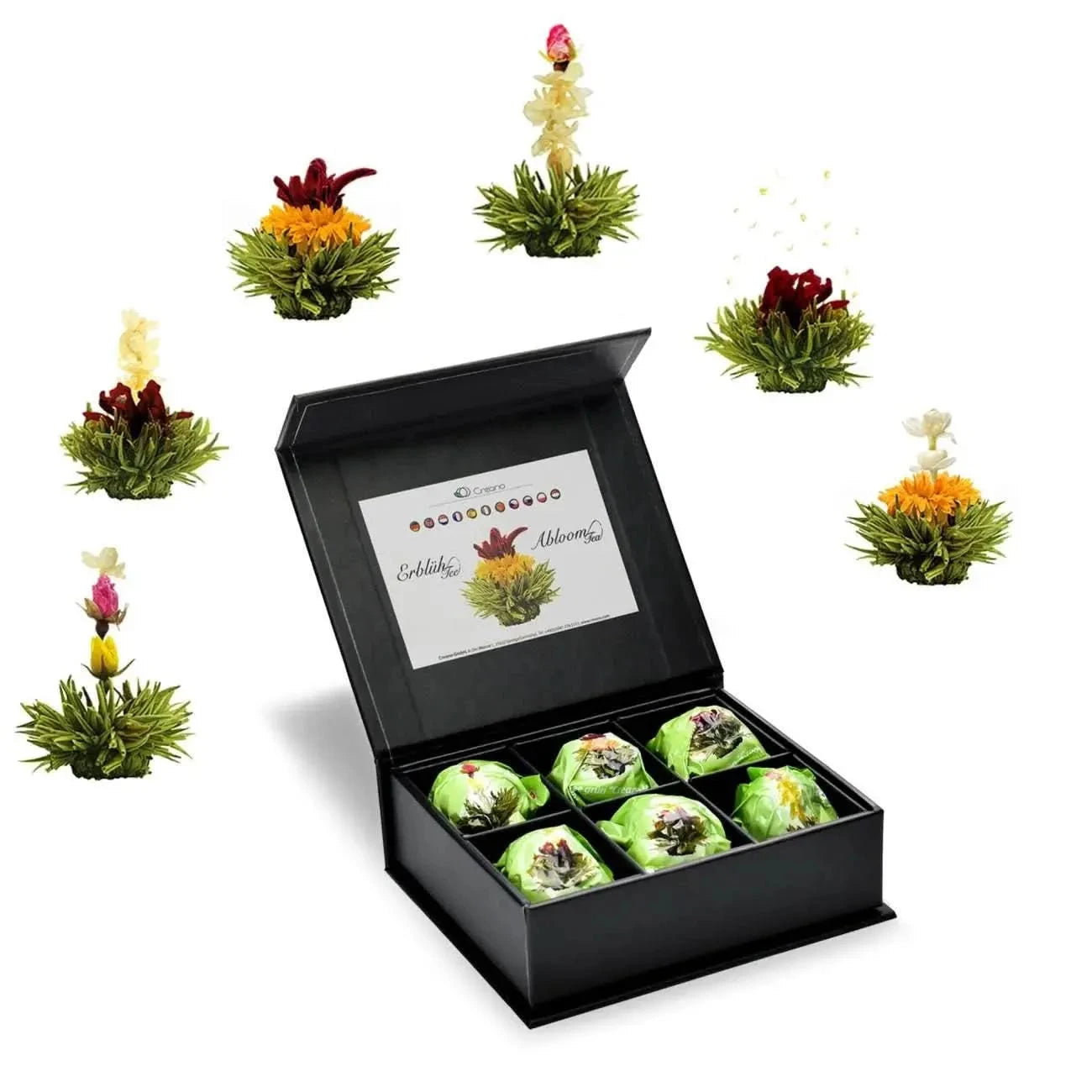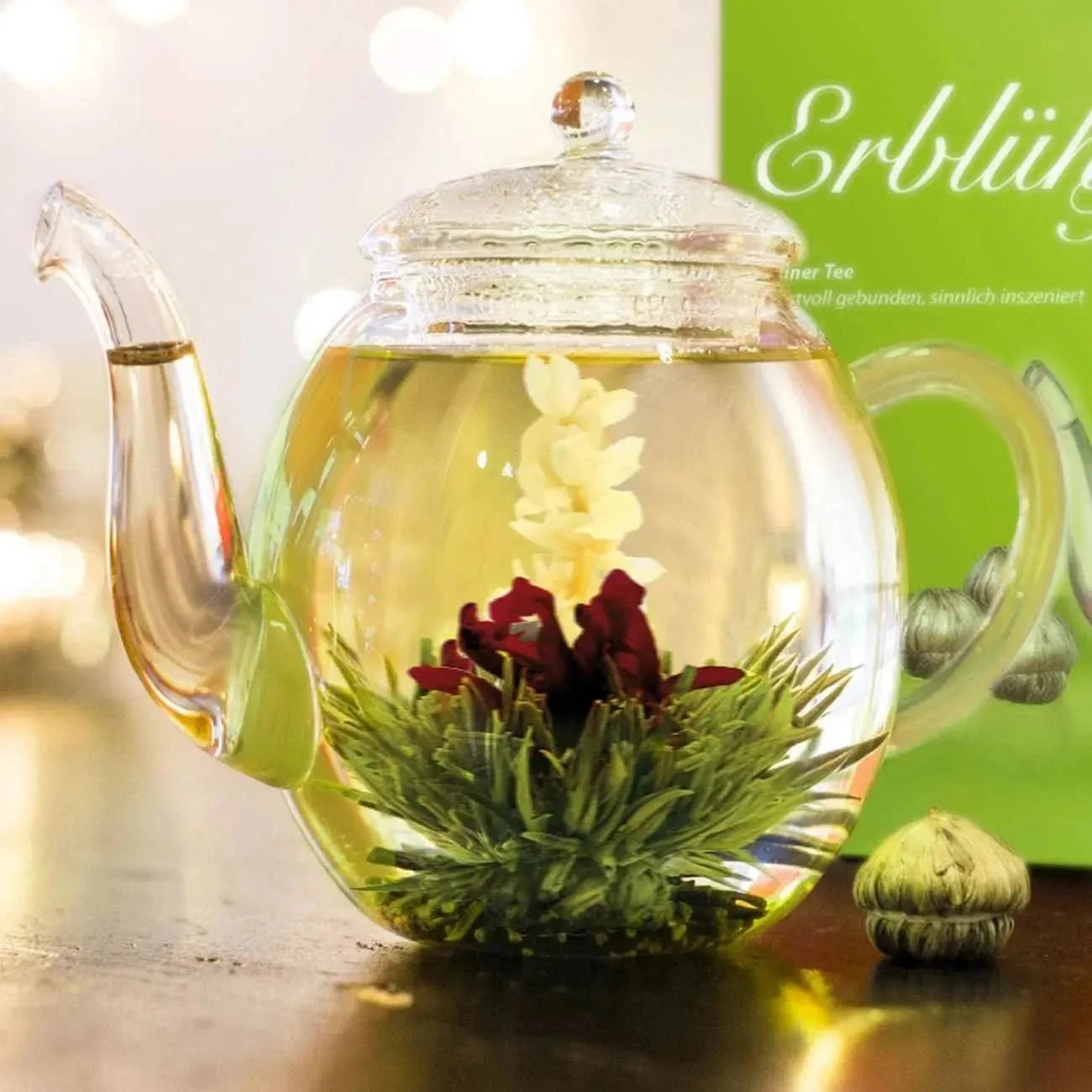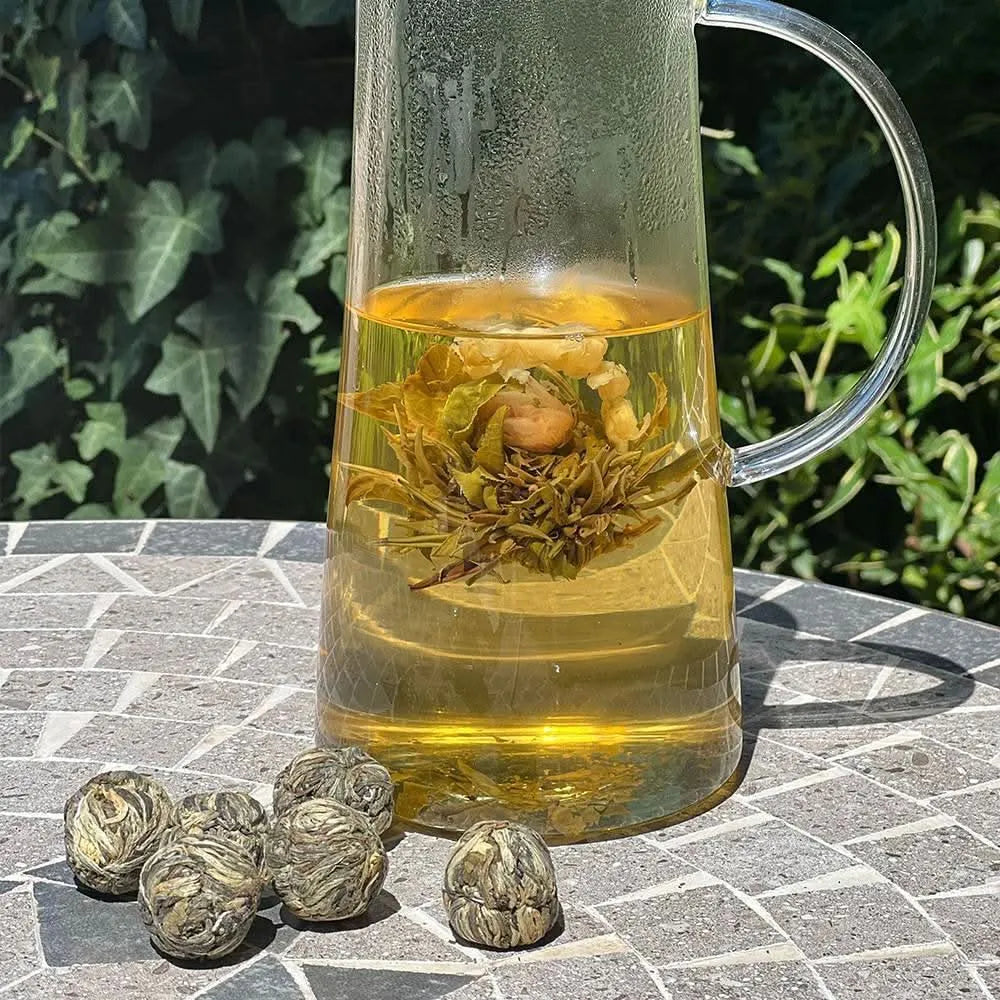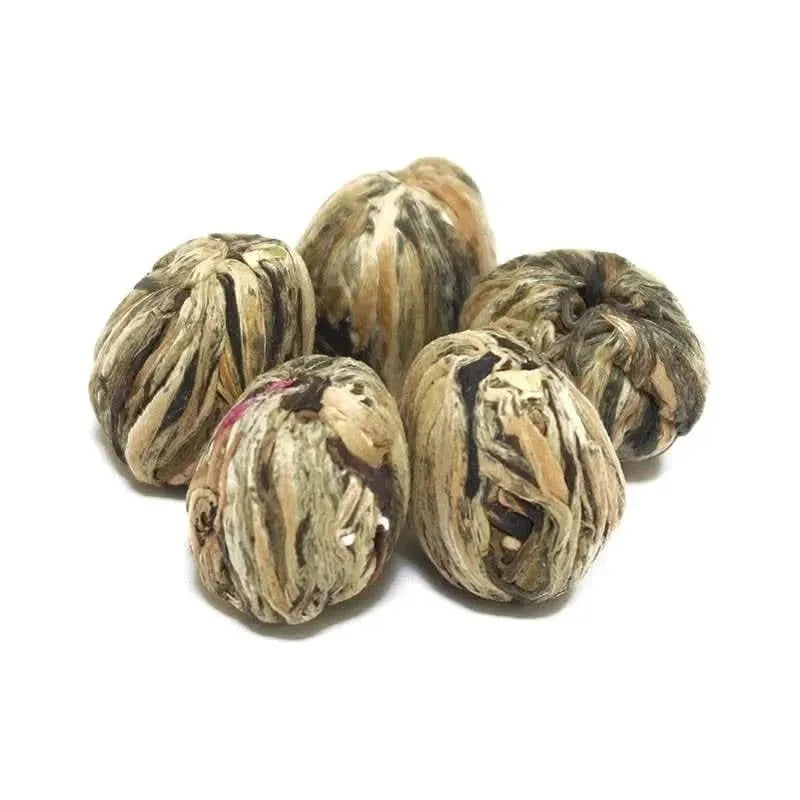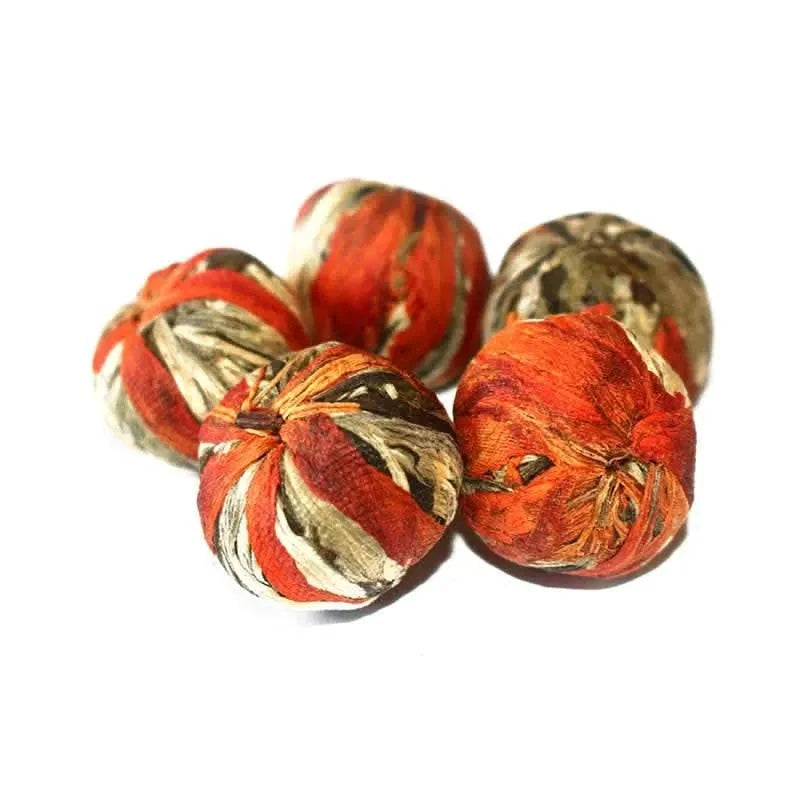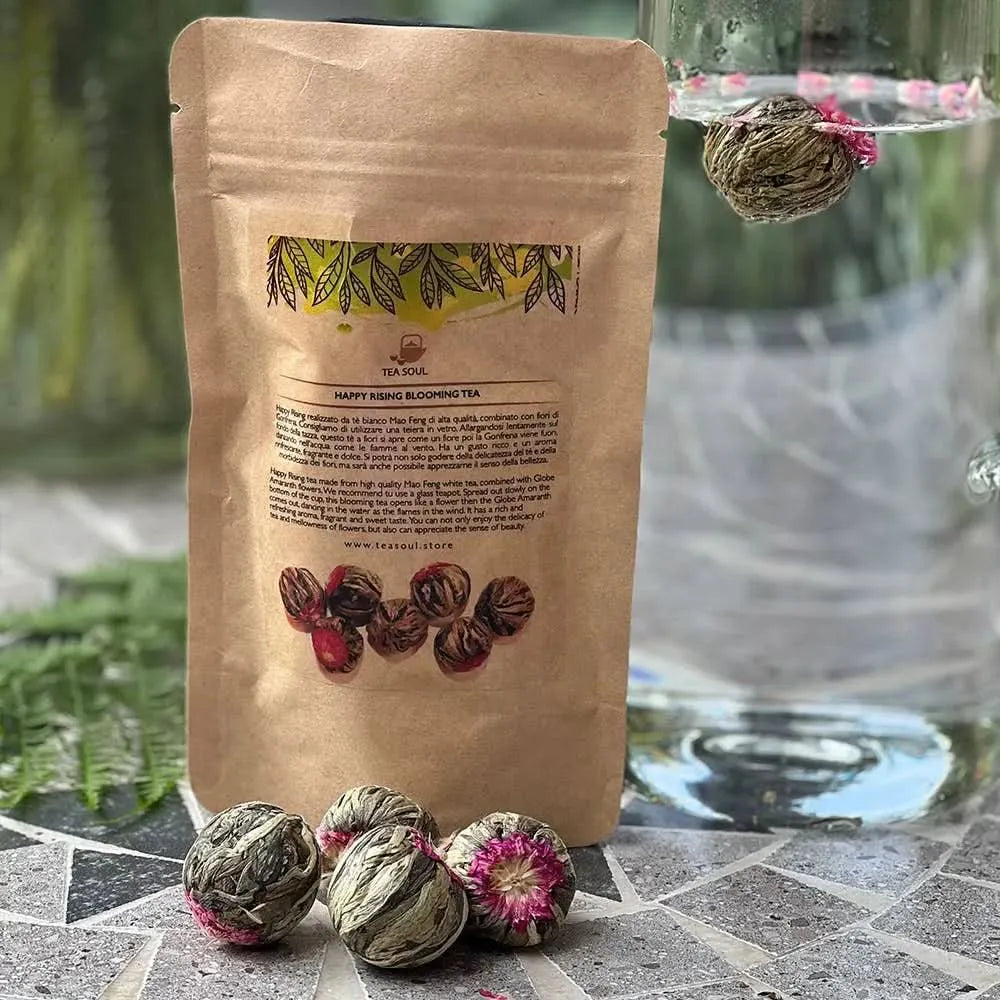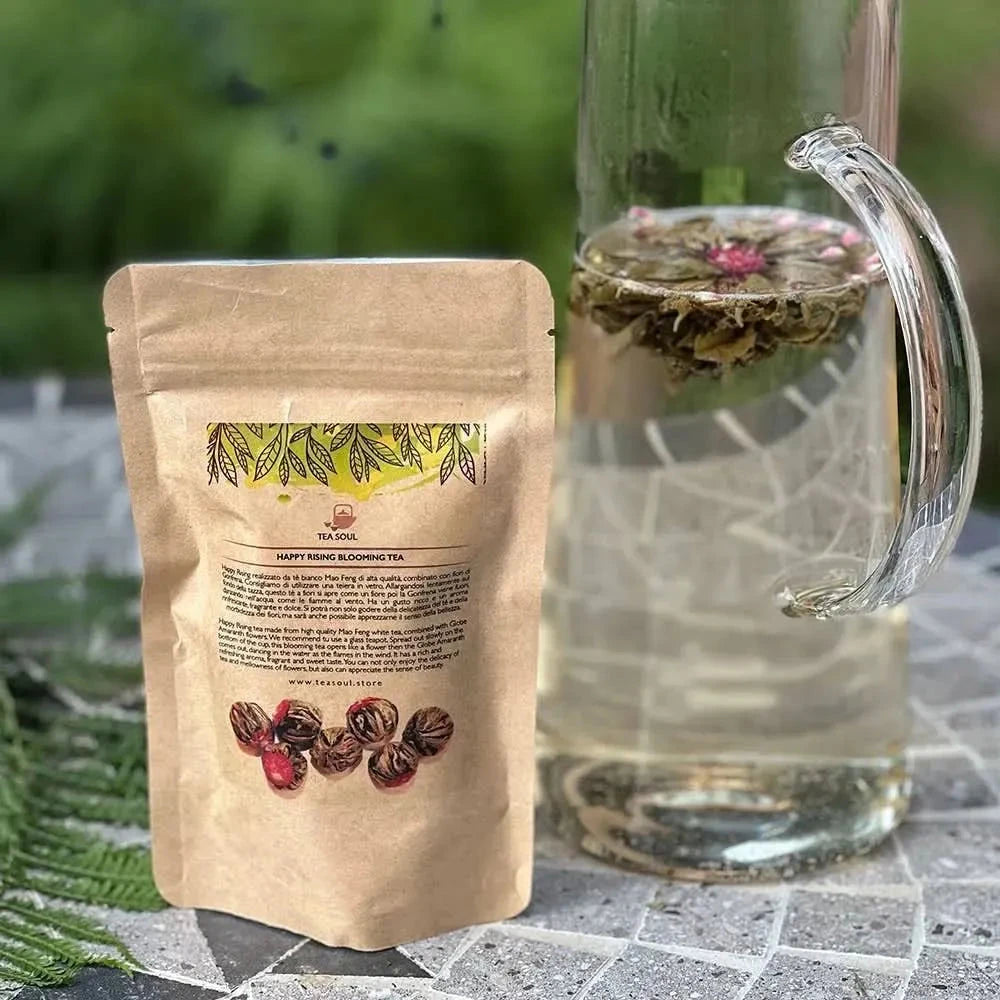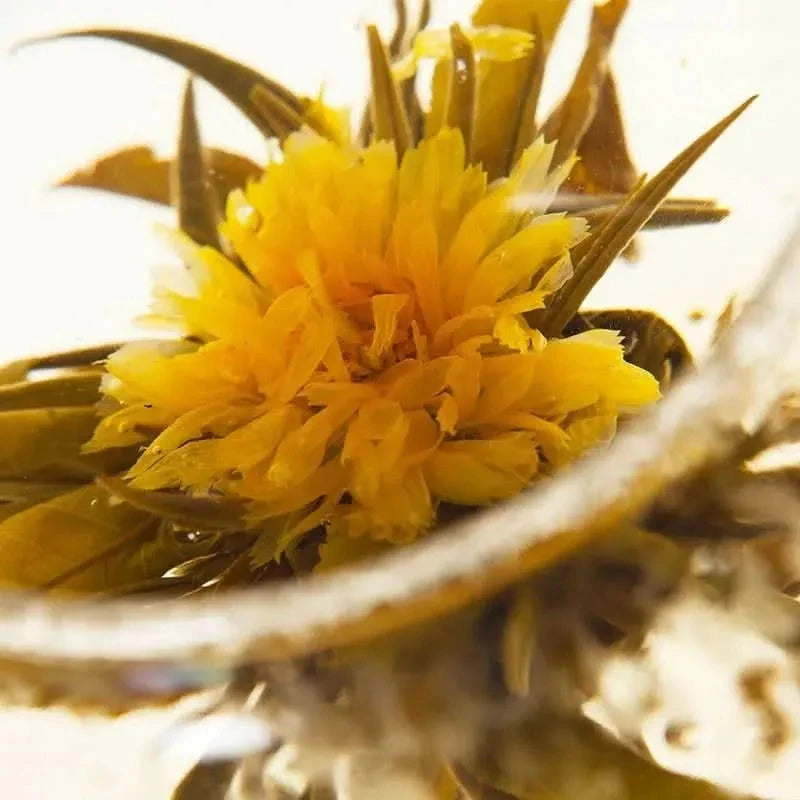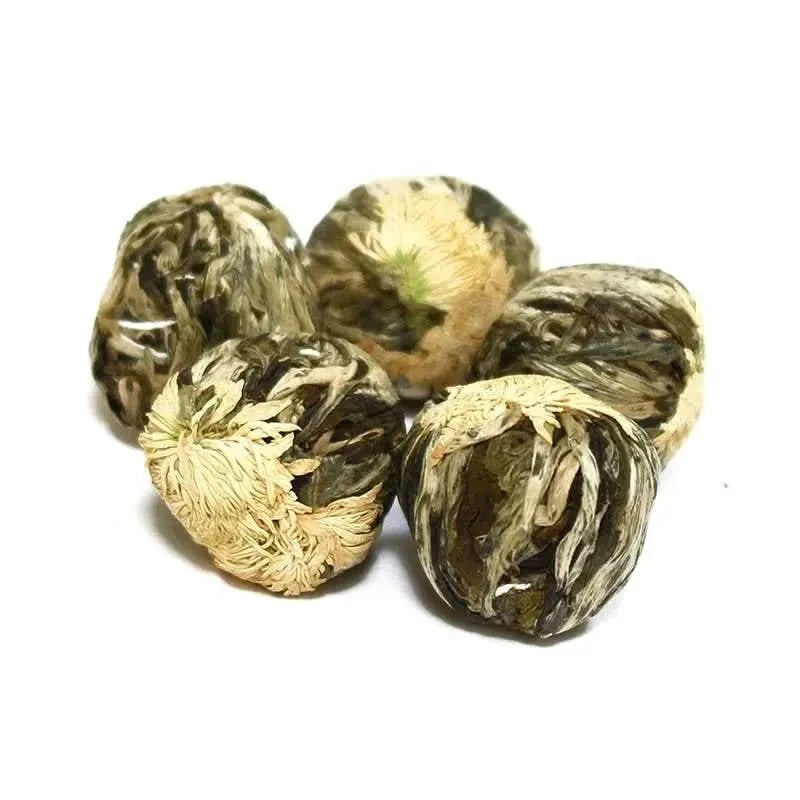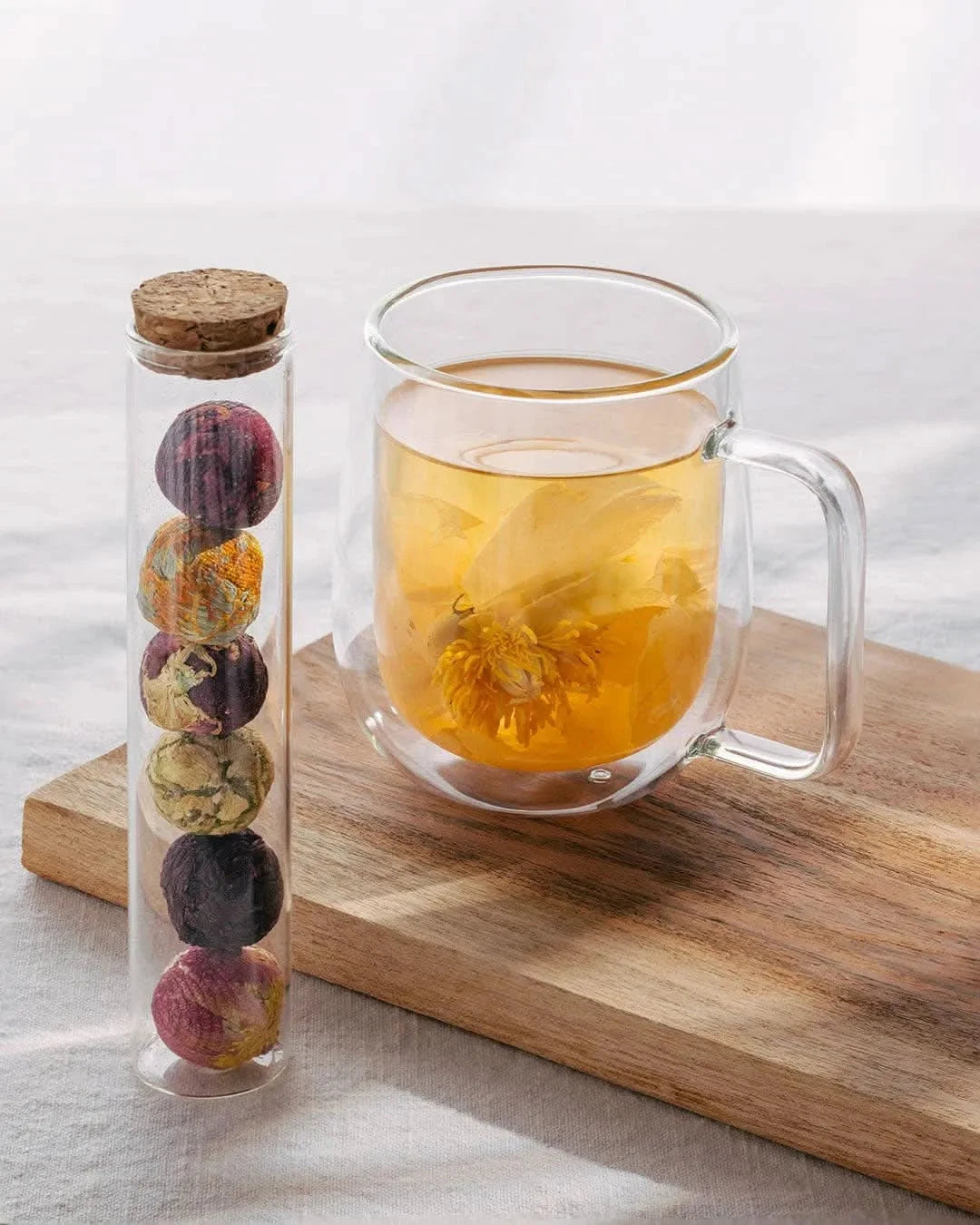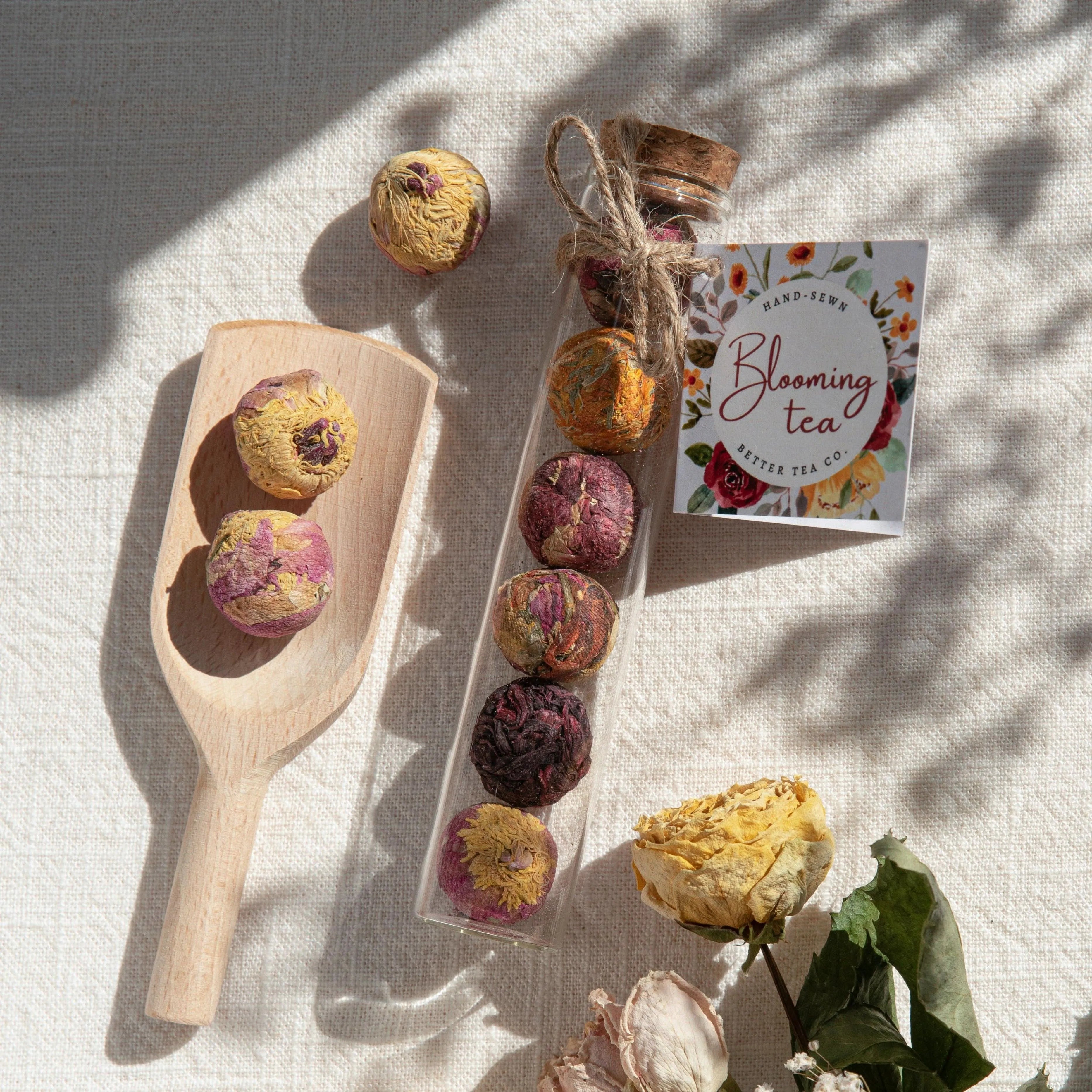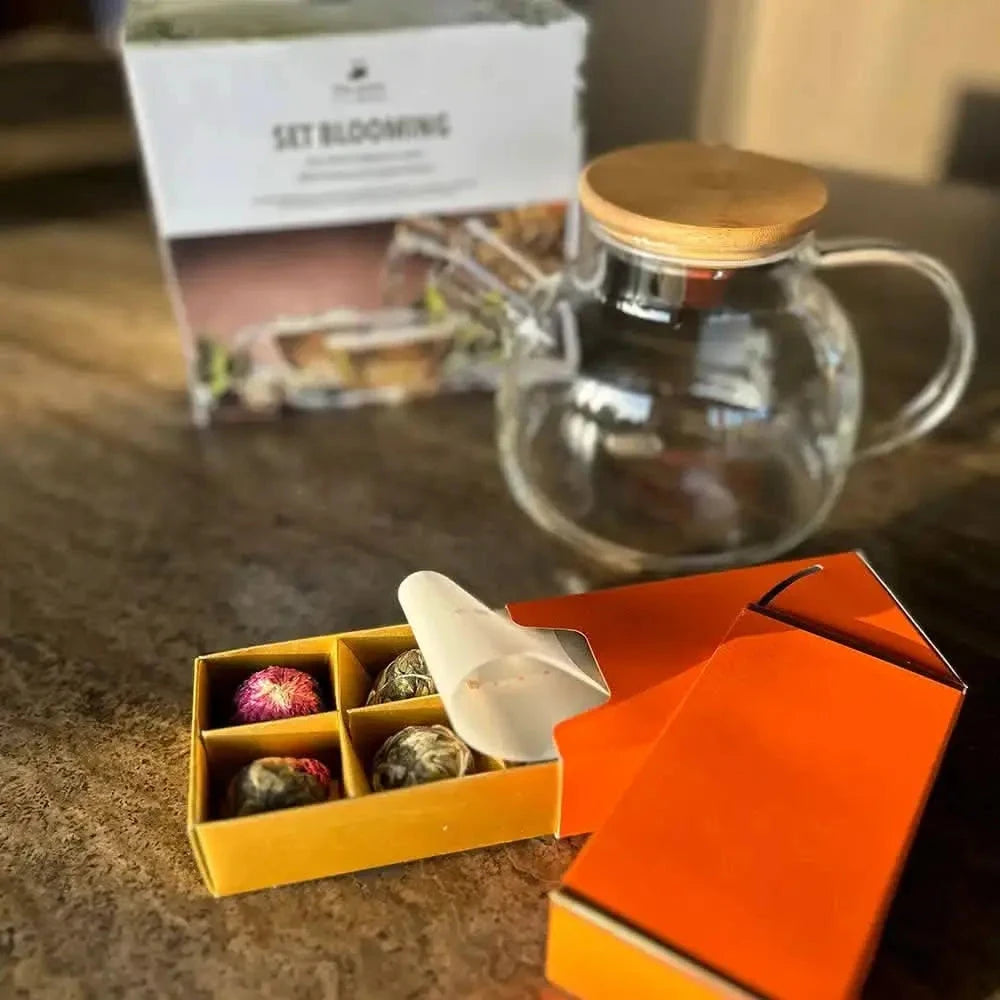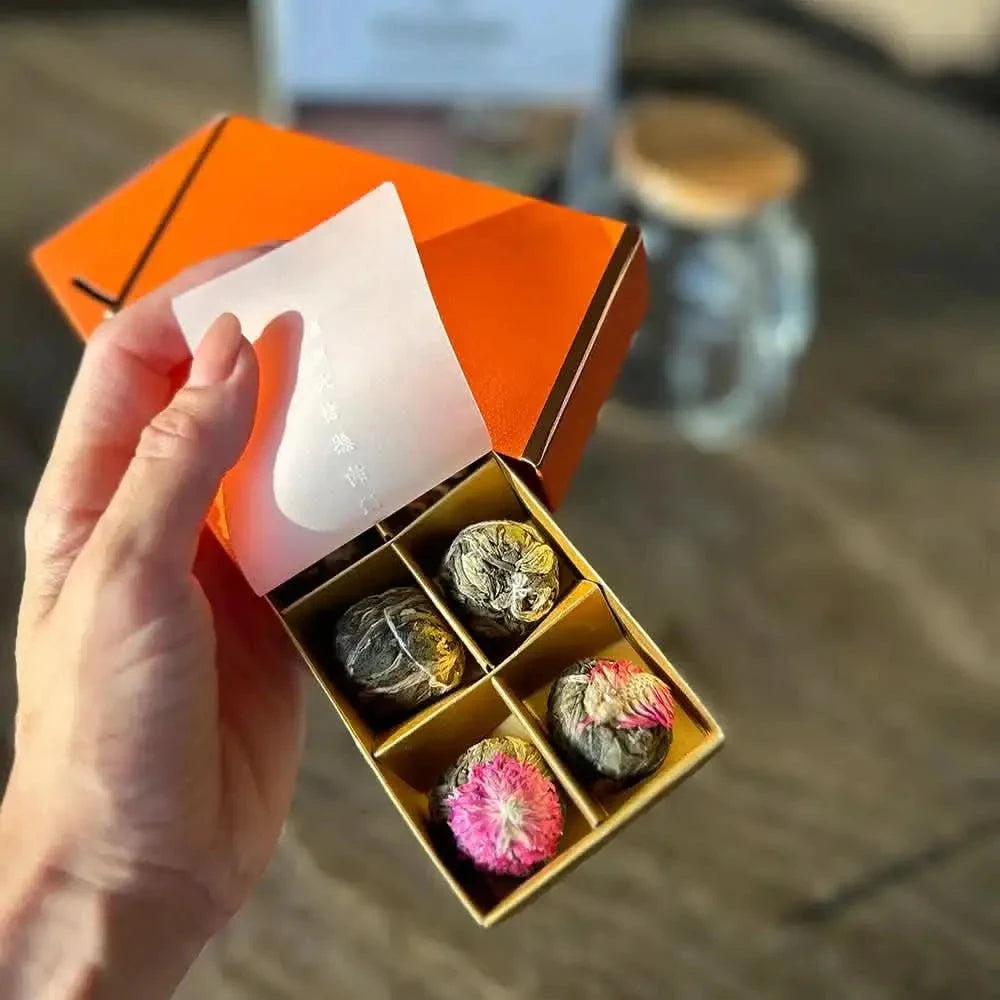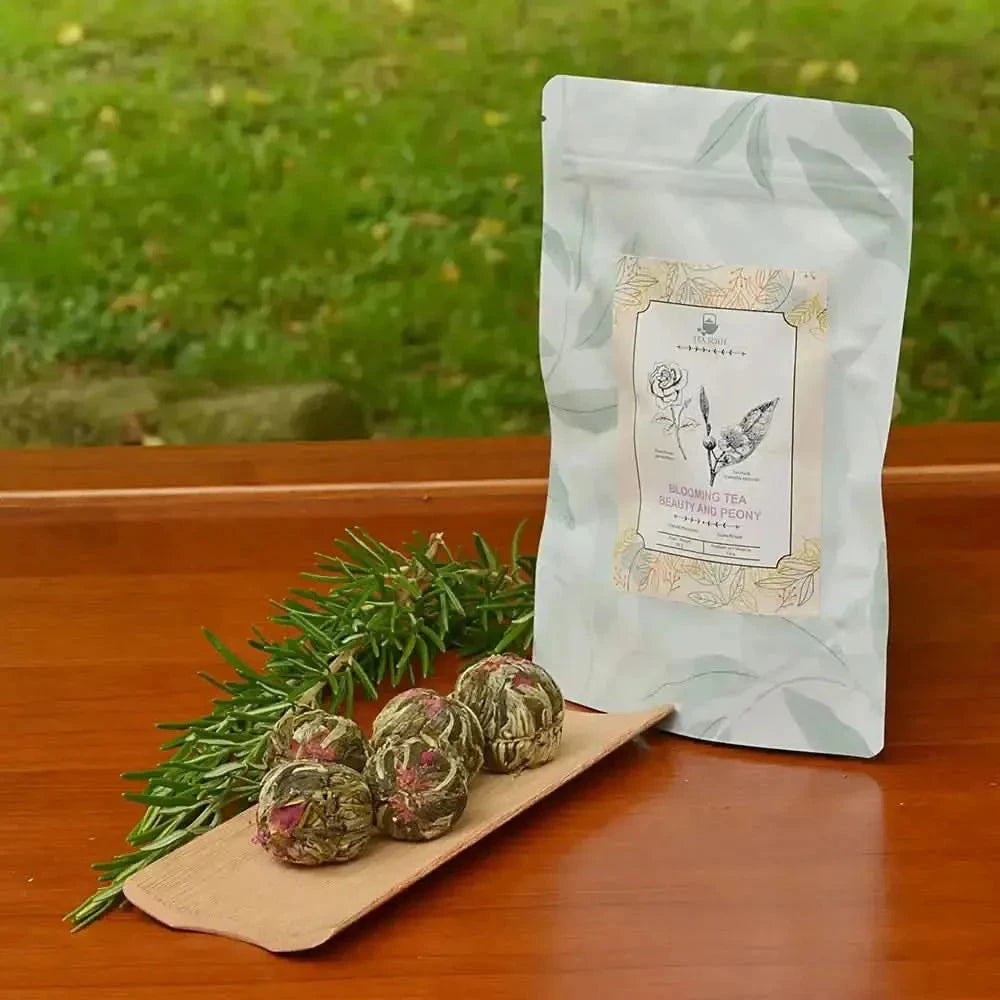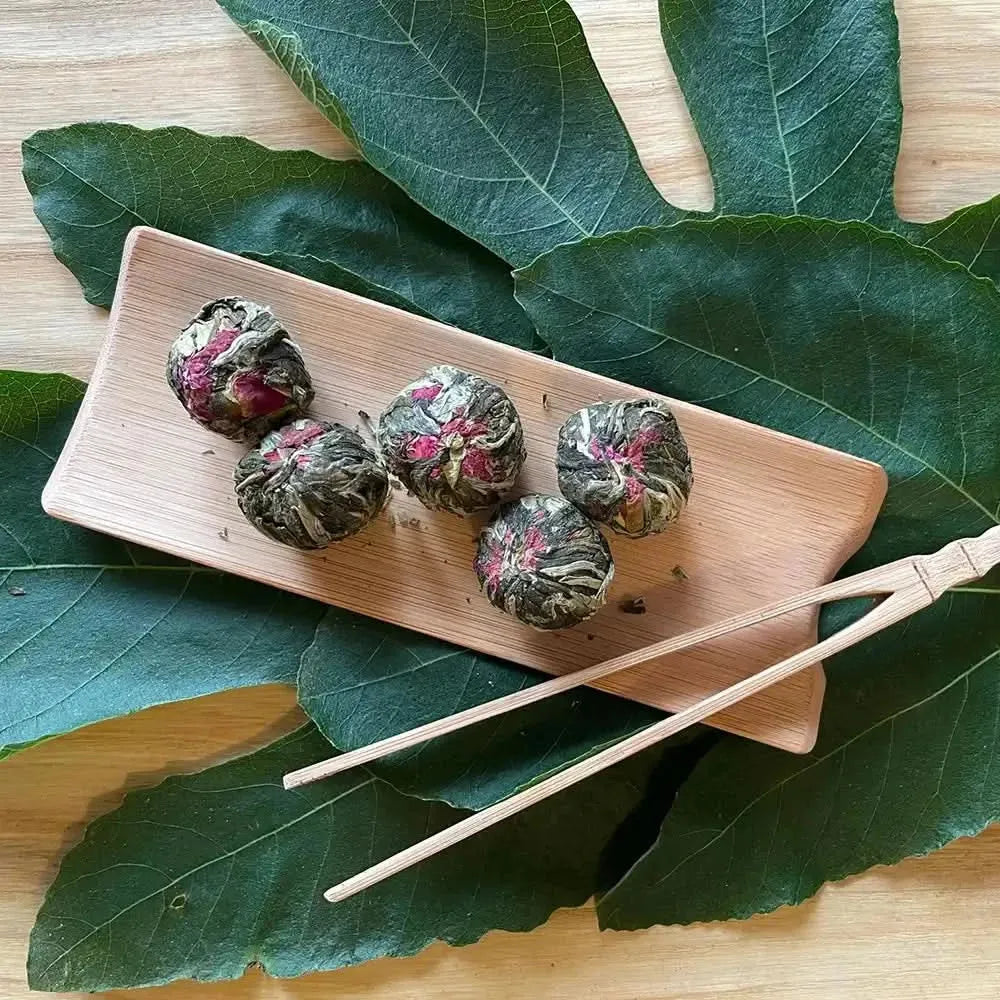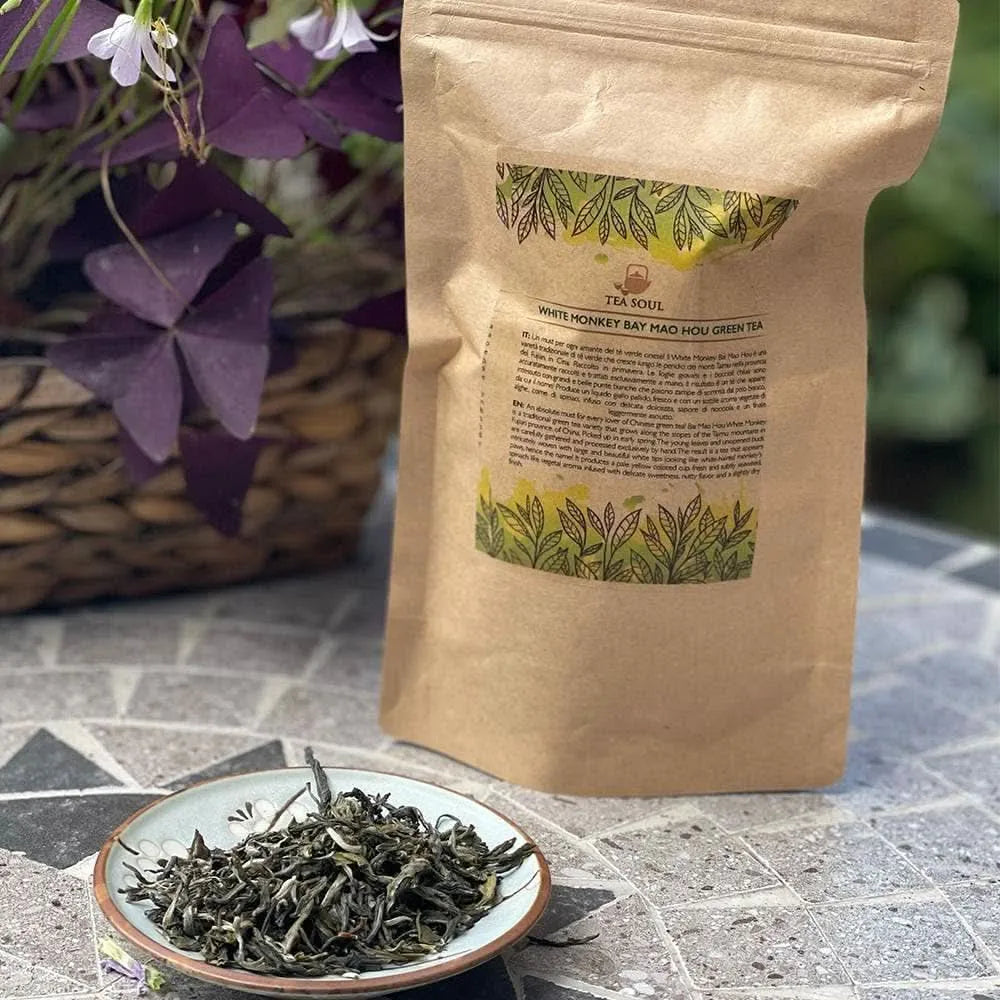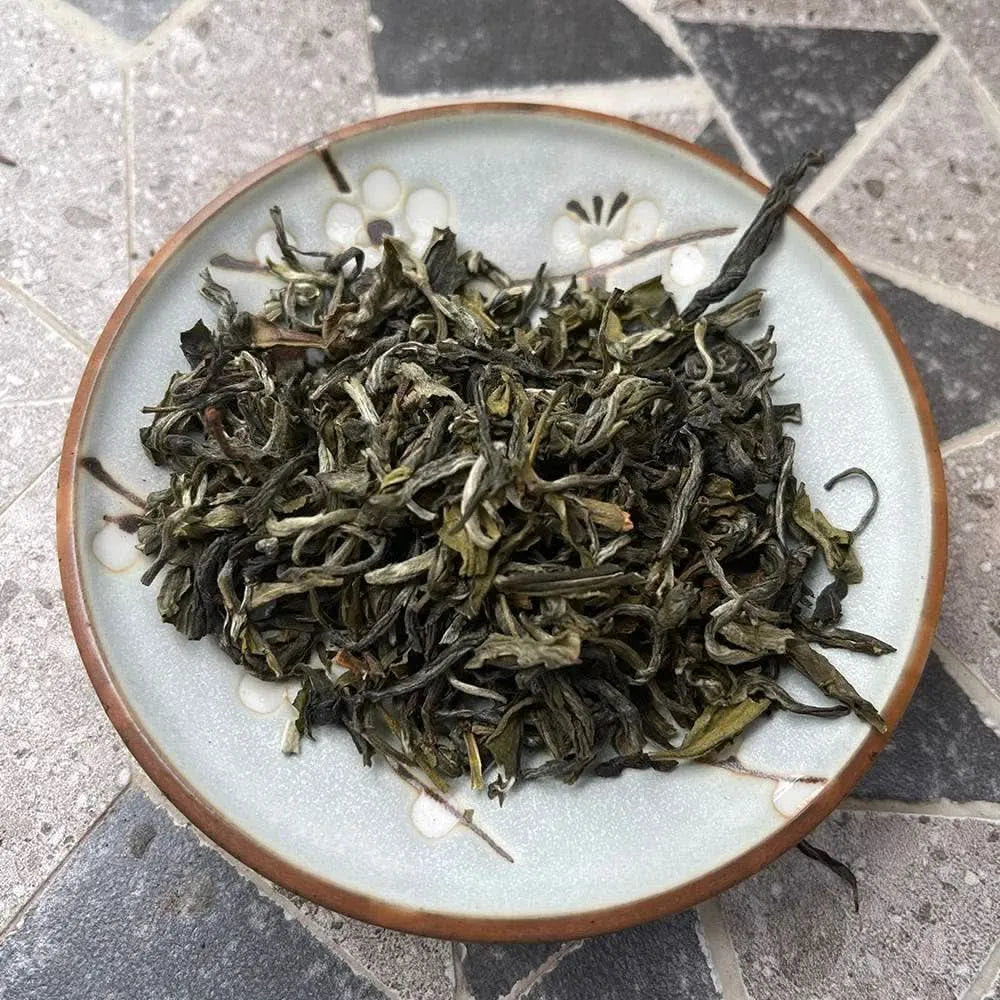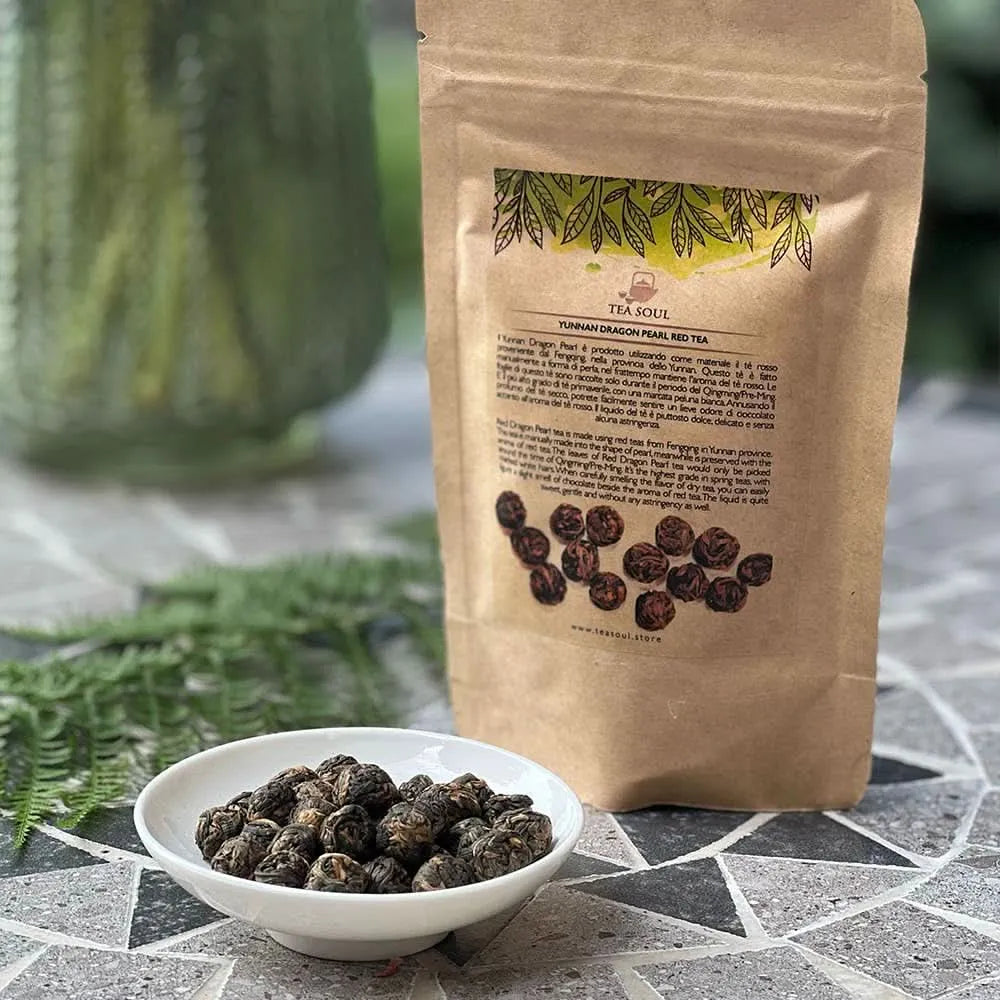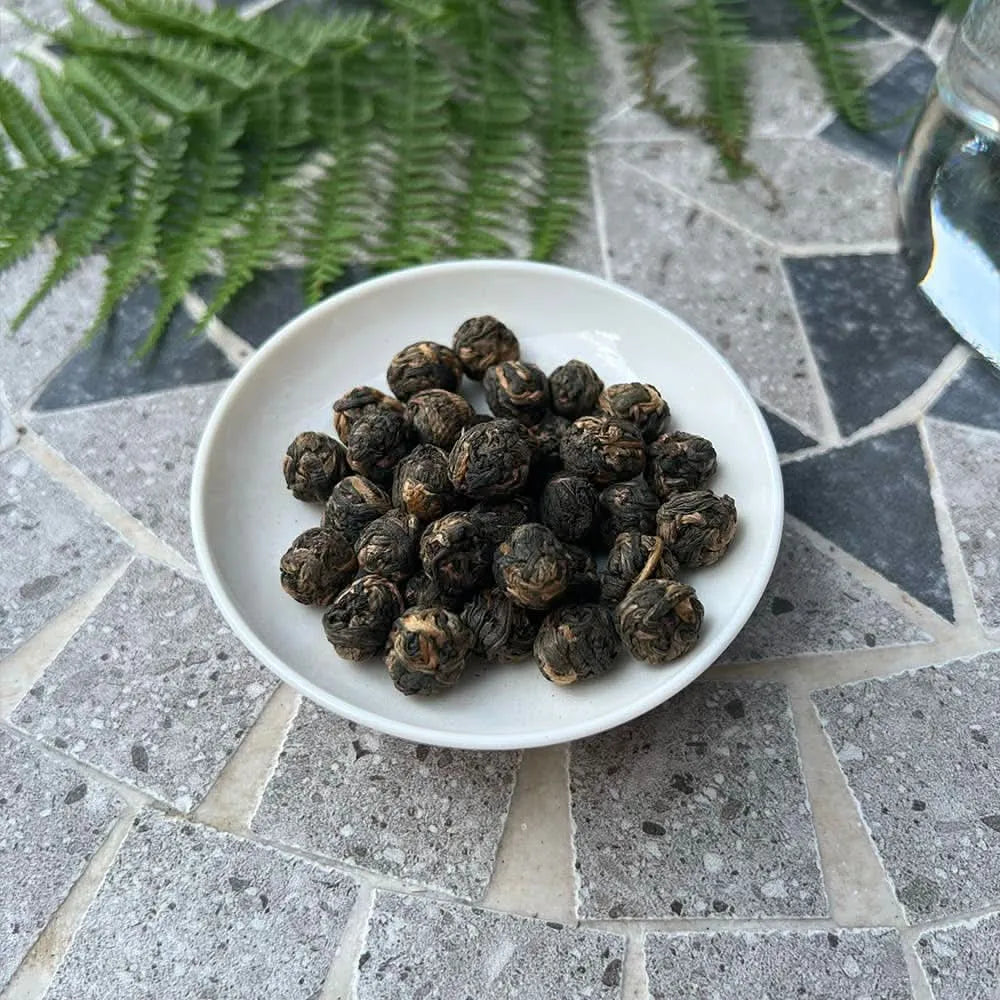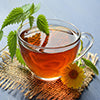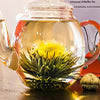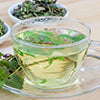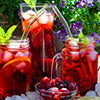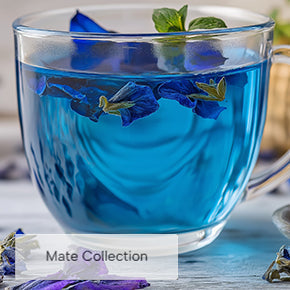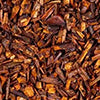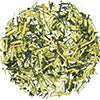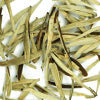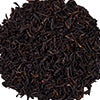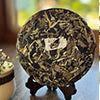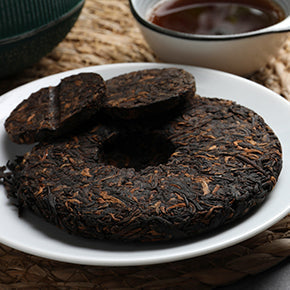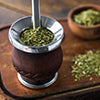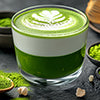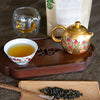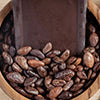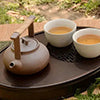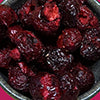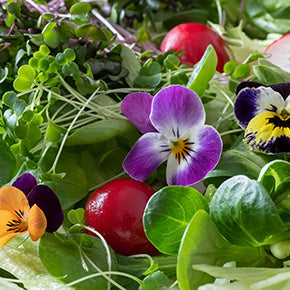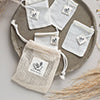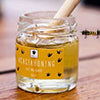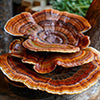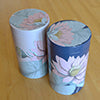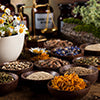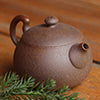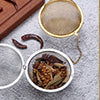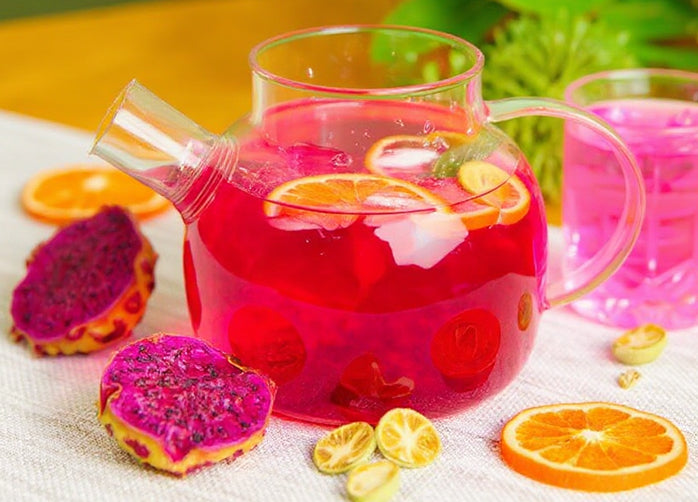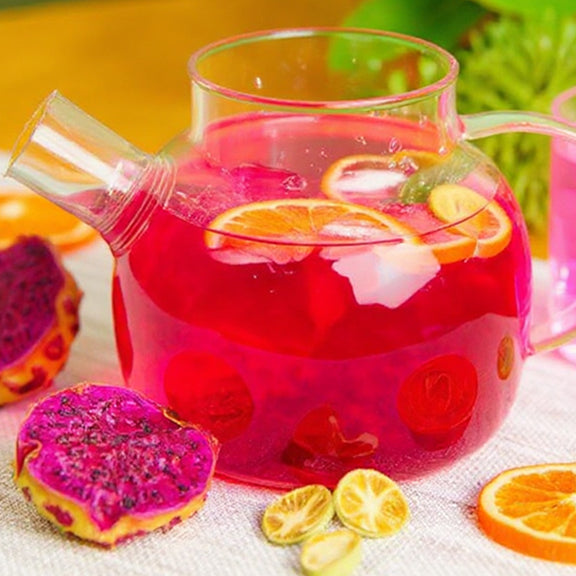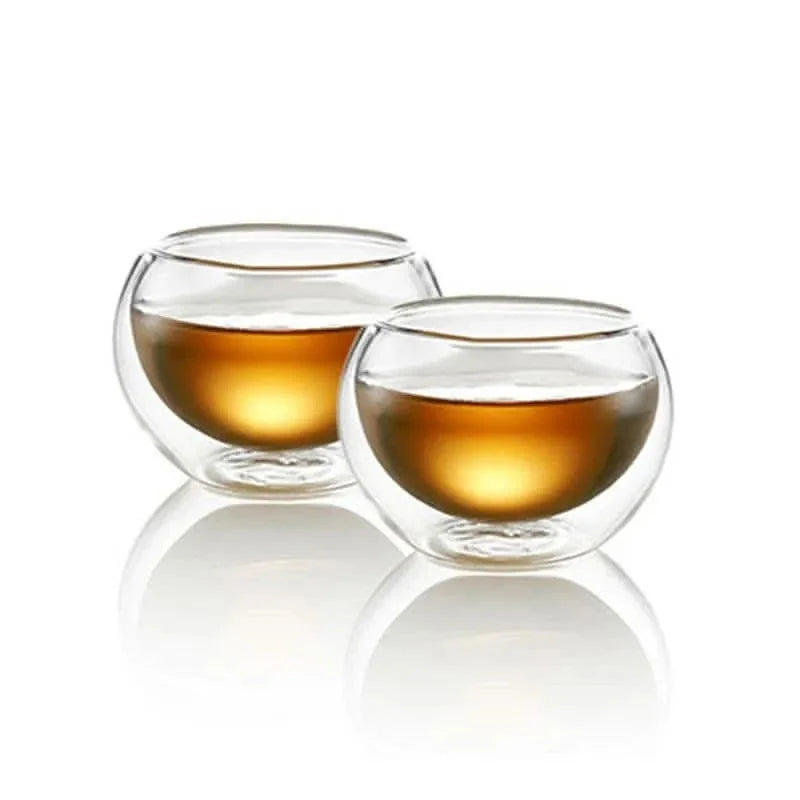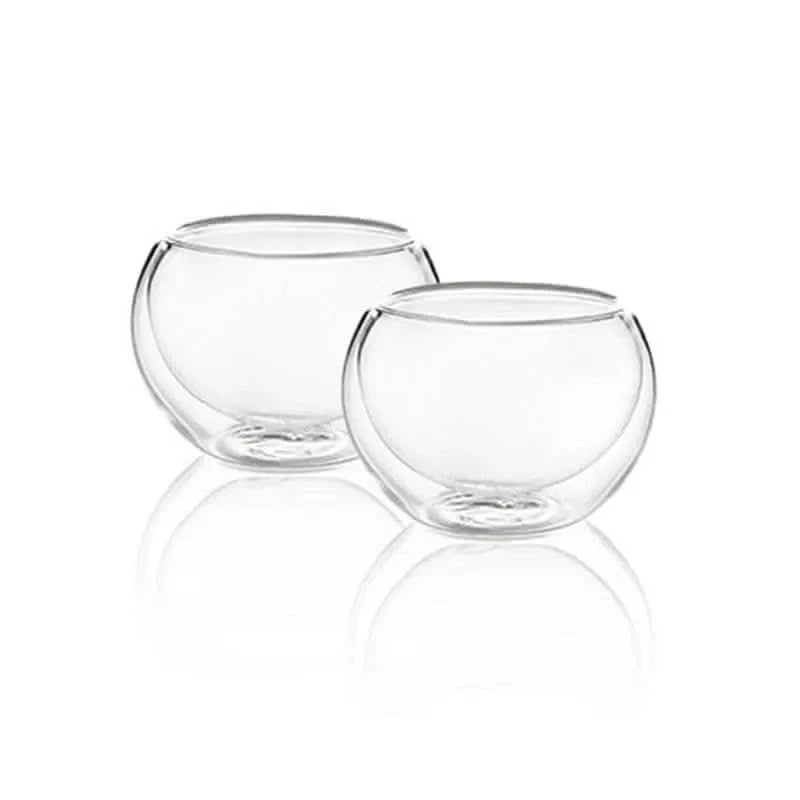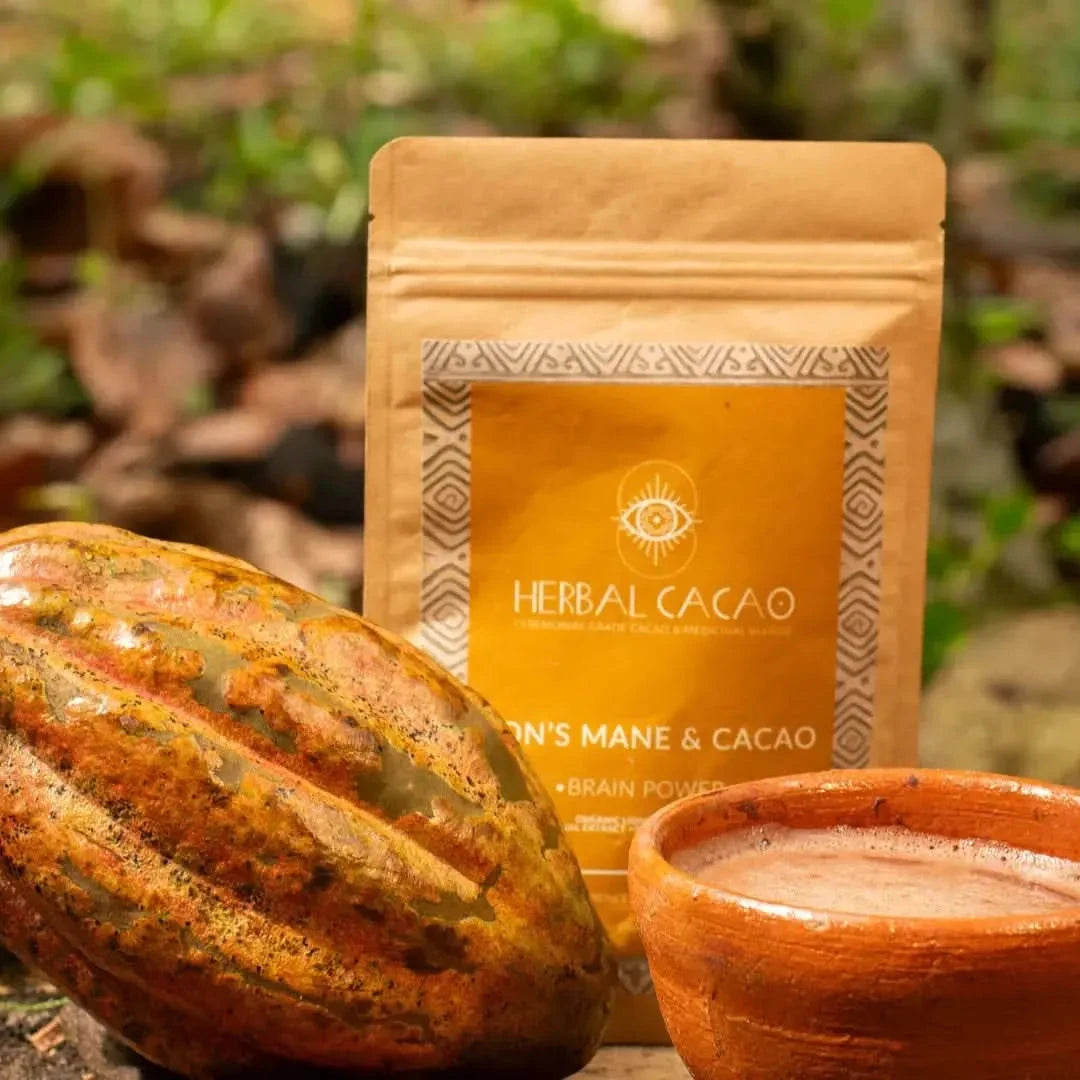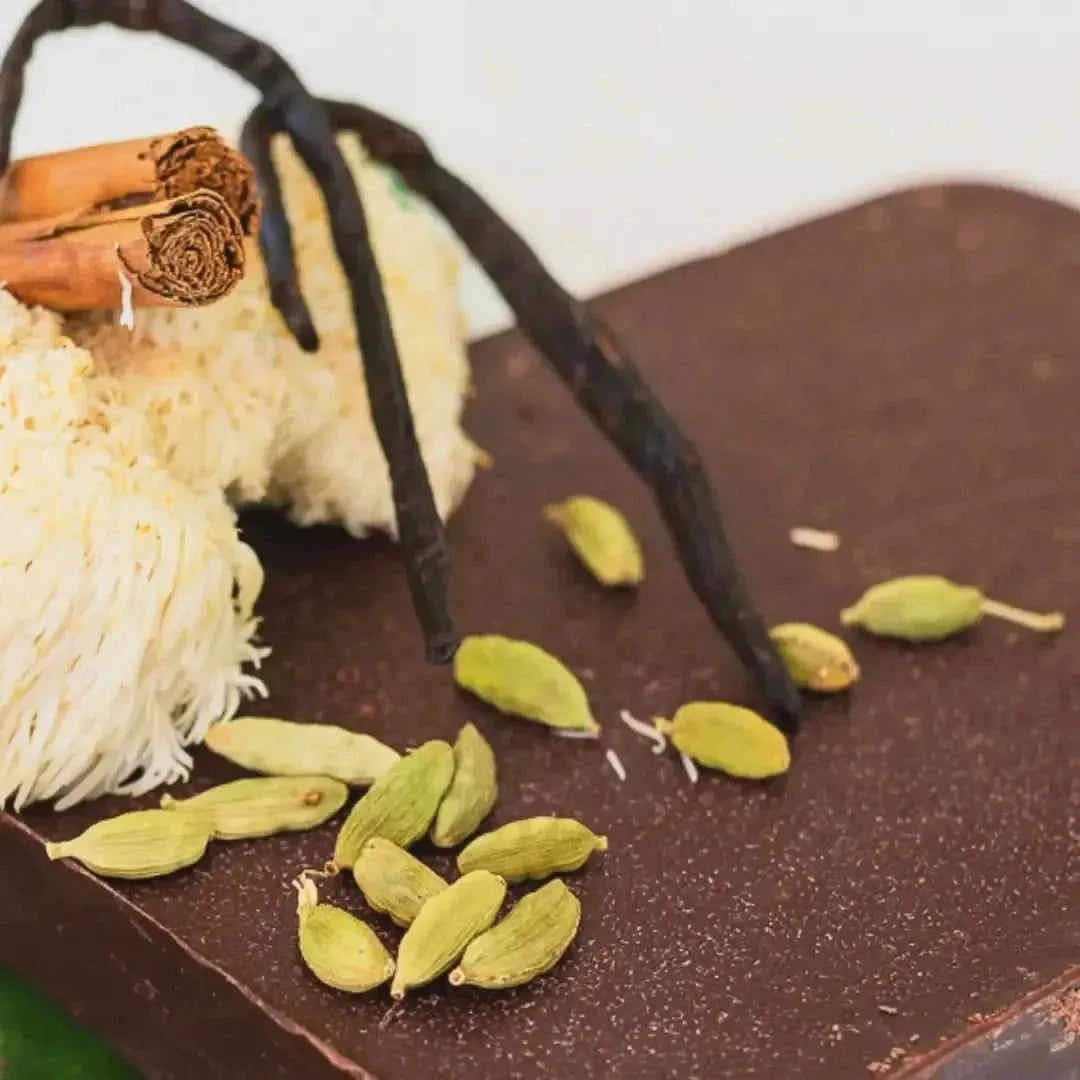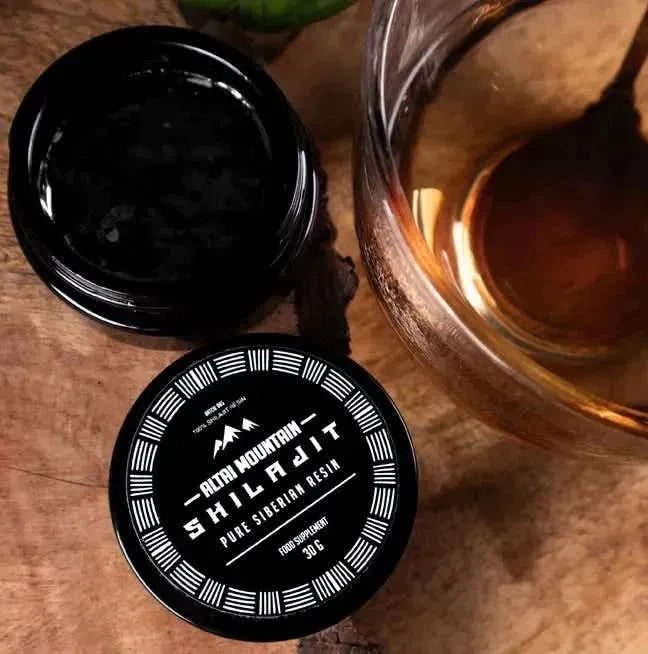Blooming Tea
Filter
Sort by:
Description
Blooming Tea: The Art of Flowering Tea
Blooming tea, also known as flowering tea, is a handcrafted tea bundle made by wrapping dried tea leaves, typically green or black tea, around dried flowers. When steeped in hot water, the bundle unfurls, creating a visually stunning blooming effect while releasing the flavors and aromas of both the tea and flowers. Originating from China's Yunnan province, this tea combines traditional craftsmanship with health benefits and aesthetic appeal.
What is Blooming Tea?
Blooming tea is crafted by meticulously wrapping tea leaves around dried flowers, forming a bulb or heart-shaped bundle. The process is often done by hand, ensuring the preservation of the tea's quality and the flower's beauty. Each bundle is individually wrapped in foil to maintain freshness and flavor.
Health Benefits of Blooming Tea
Blooming tea is rich in antioxidants, including flavonoids, catechins, and polyphenols, which protect cells and aid in disease prevention. It improves brain function by protecting neurons, boosts metabolic rate for weight management, and reduces stress with calming amino acids like theanine. Additionally, it supports heart health, aids digestion, and nourishes the skin by protecting against UV radiation and maintaining collagen levels.
Cultural Significance of Blooming Tea
Blooming tea originated in China's Yunnan province and gained global popularity in the early 2000s. It symbolizes harmony and beauty in Chinese culture and is often served in transparent containers to highlight its blooming effect. This tea is a popular choice for special occasions and gifts, reflecting traditional craftsmanship and attention to detail.
Types
Traditional Compositions
Classic green tea bases provide fresh, vegetal notes complementing floral elements. White tea bases offer subtle sweetness enhancing flower characteristics. Black tea variations provide robust bases supporting stronger floral components.
Flower Selections
Jasmine flowers contribute distinctive aroma and flavor compounds. Globe amaranth provides visual appeal and subtle flavor notes. Lily varieties offer both aesthetic and aromatic properties. Osmanthus adds characteristic sweetness and golden color.
Specialty Variations
Multiple flower combinations create complex visual displays. Tea grade variations affect steeping performance and flavor development. Processing methods influence unfurling characteristics and infusion patterns.
Regional Styles
Chinese preparations traditionally utilize specific flower combinations. Taiwanese styles incorporate local flower varieties. Modern interpretations explore new flower and tea combinations.
Seasonal Collections
Spring harvested tea leaves provide optimal tenderness. Summer flowers offer peak visual characteristics. Autumn variations incorporate chrysanthemum varieties. Winter selections feature preserved flower components.
Benefits
Base Tea Properties
Green tea components provide characteristic antioxidant compounds including catechins. White tea bases contribute high levels of polyphenols. Black tea variations offer theaflavin and thearubigin compounds.
Floral Contributions
Jasmine flowers provide specific aromatic compounds affecting both taste and aroma. Globe amaranth contributes unique polyphenols. Lily varieties add distinct flavor compounds and traditional properties.
Combined Effects
Synergistic interactions between tea and flower compounds create unique profiles. Processing methods preserve both tea and flower components. Multiple infusion capabilities maximize compound extraction potential.
Caffeine Profiles
Green tea bases provide moderate caffeine levels. White tea variations offer lower caffeine content. Black tea bases contribute higher caffeine levels. Flower components remain caffeine-free.
Antioxidant Properties
Combined tea and flower materials provide diverse antioxidant compounds. Processing methods preserve active component integrity. Multiple infusions extract different compound ratios.
Instructions
Production Parameters
Tying temperature: 20-25°C
Humidity control: 60-70%
Drying parameters: 25-30°C
Storage temperature: Below 21°C
Steeping Requirements
Water temperature: 80-85°C for green base
First infusion: 3-4 minutes
Subsequent infusions: 4-5 minutes
Maximum infusions: 3-4
Quality Control
Visual inspection standards
Density parameters
Unfurling verification
Compound testing
Storage Controls
Temperature limits
Humidity restrictions
Light protection
Packaging specifications
Testing Methods
Caffeine analysis
Antioxidant testing
Microbial verification
Sensory evaluation
FAQs
